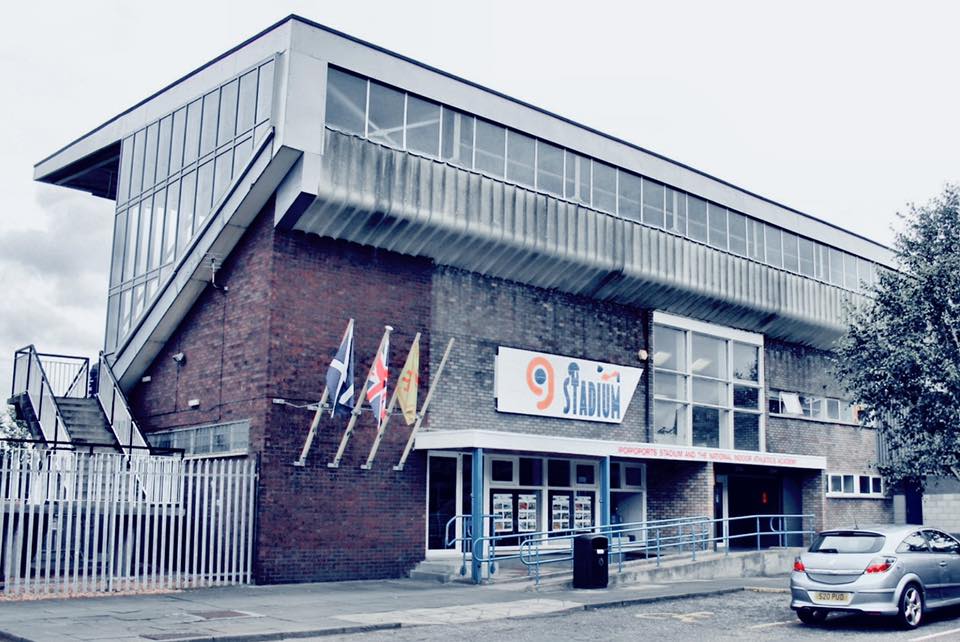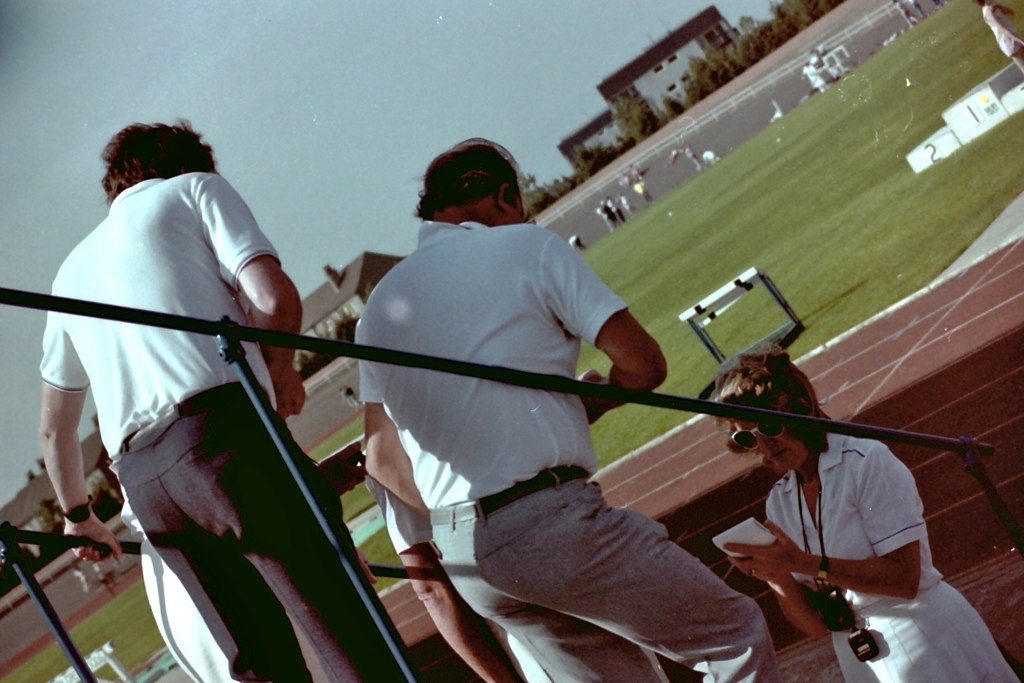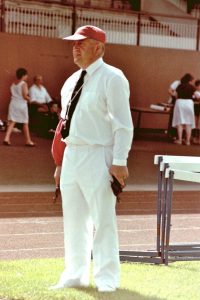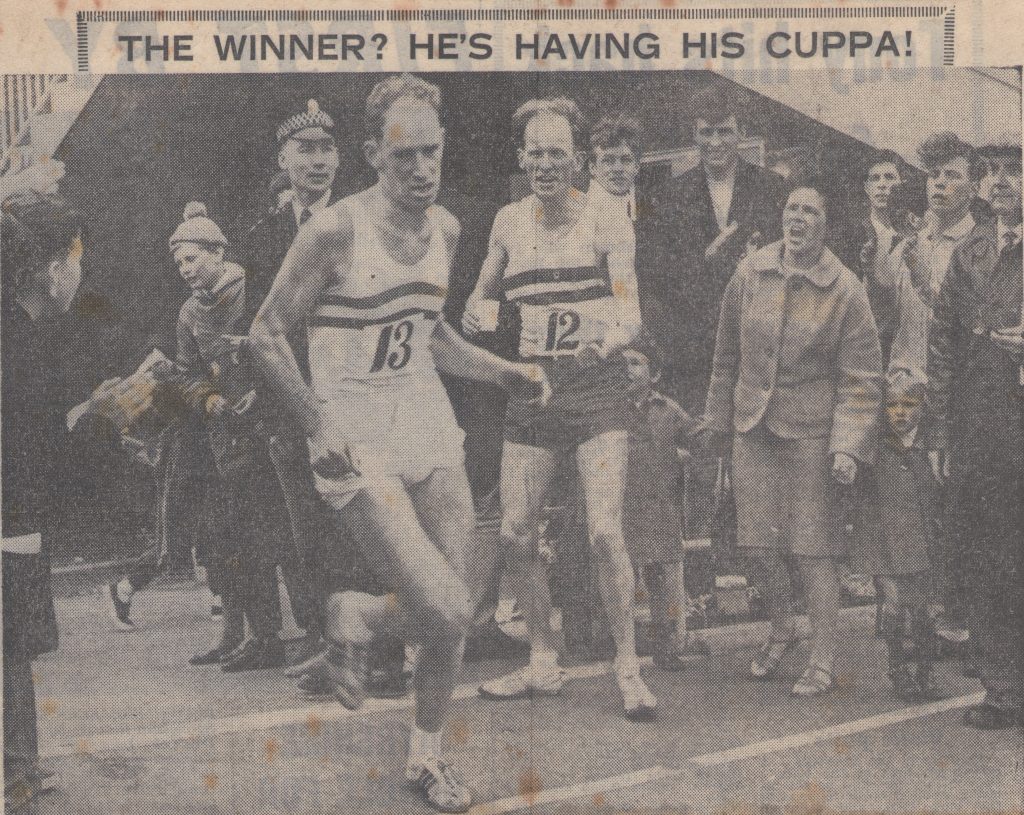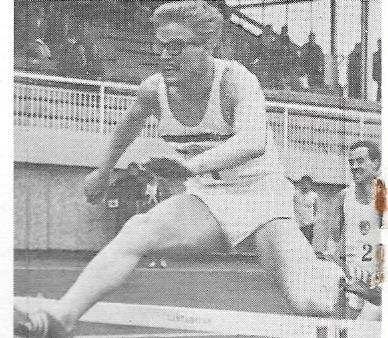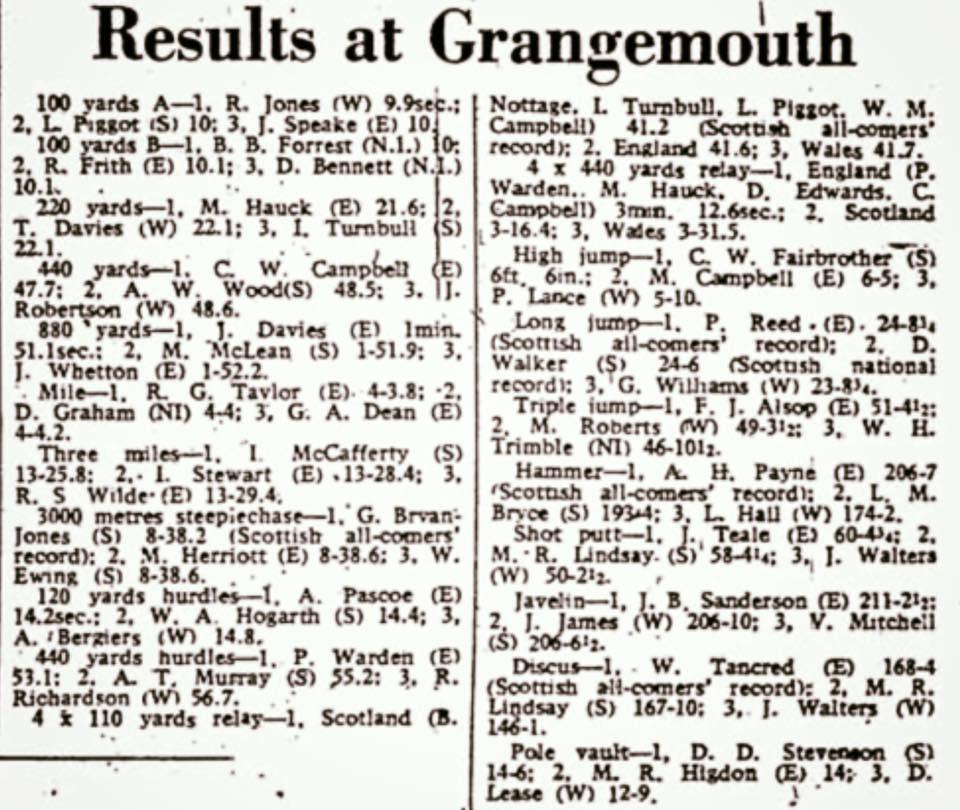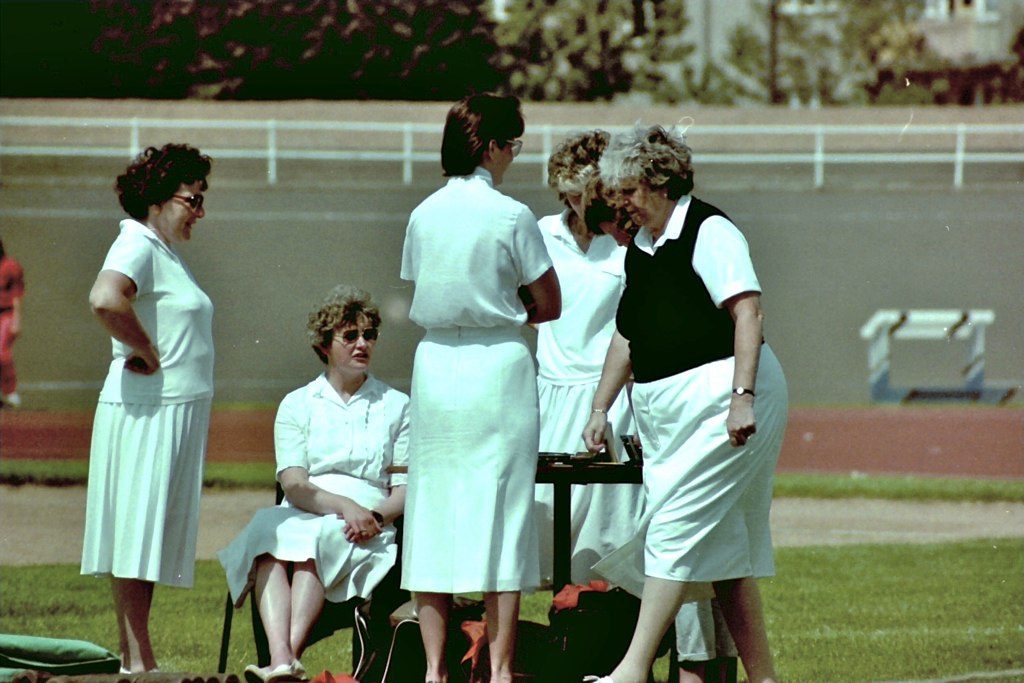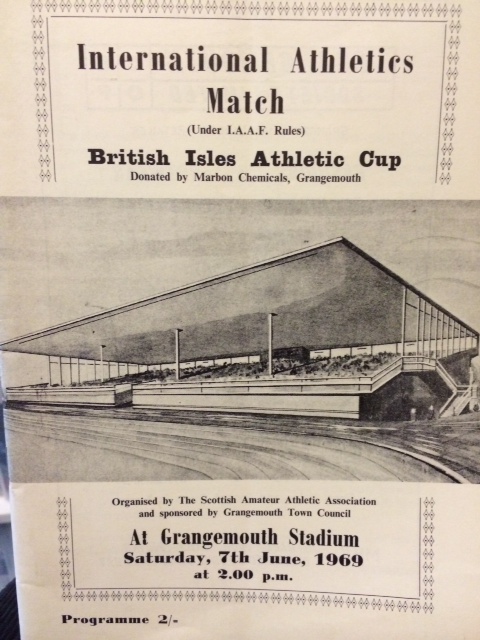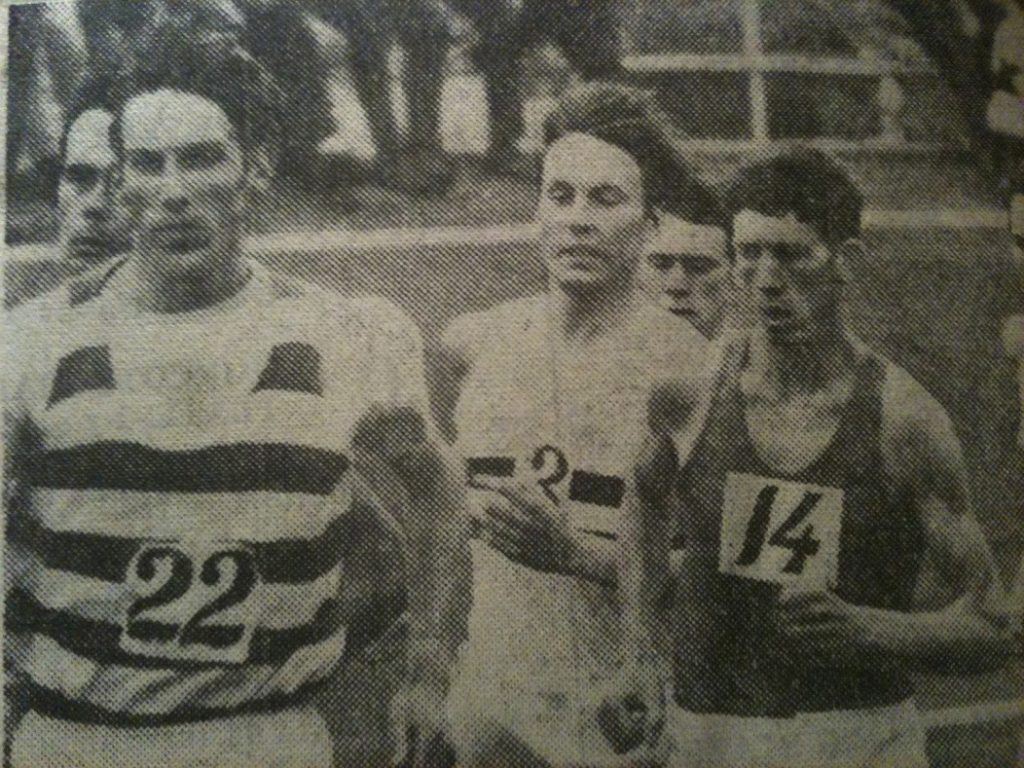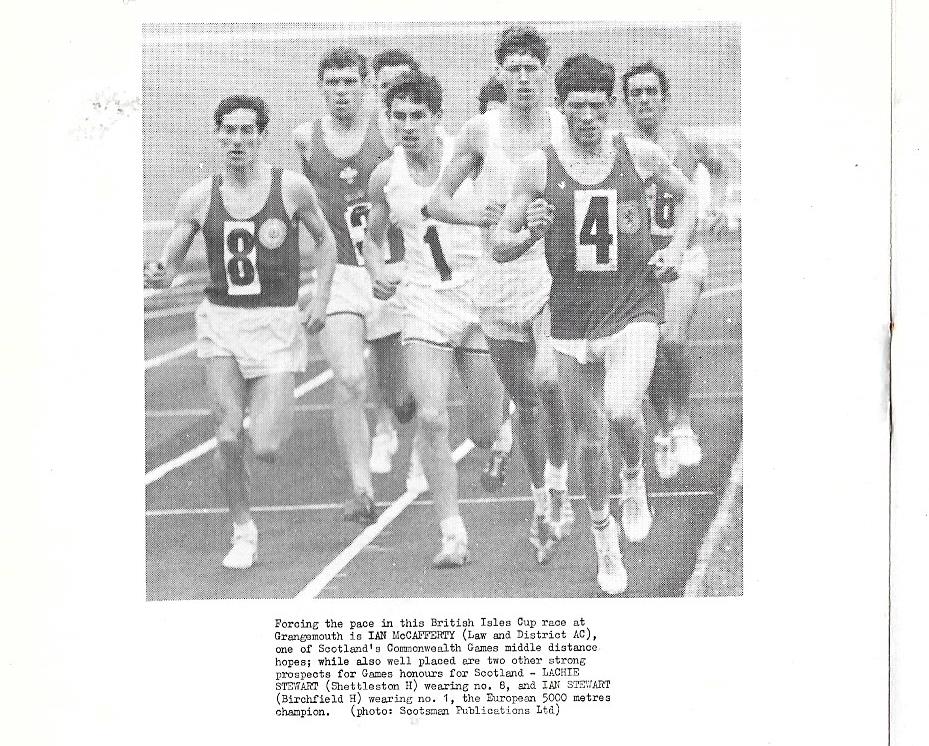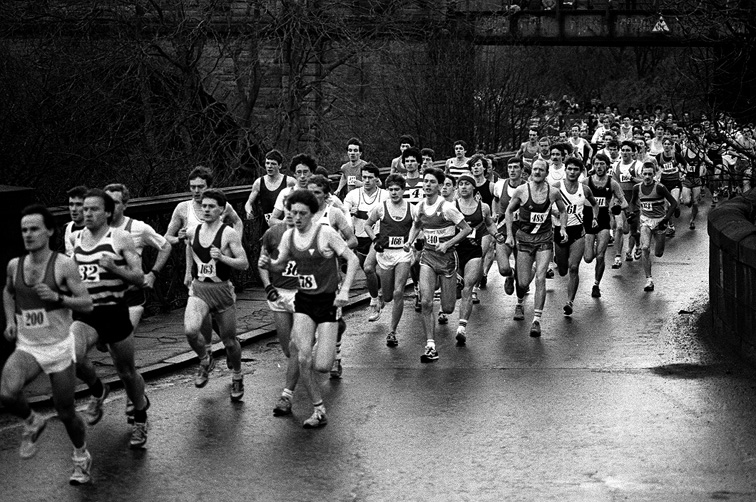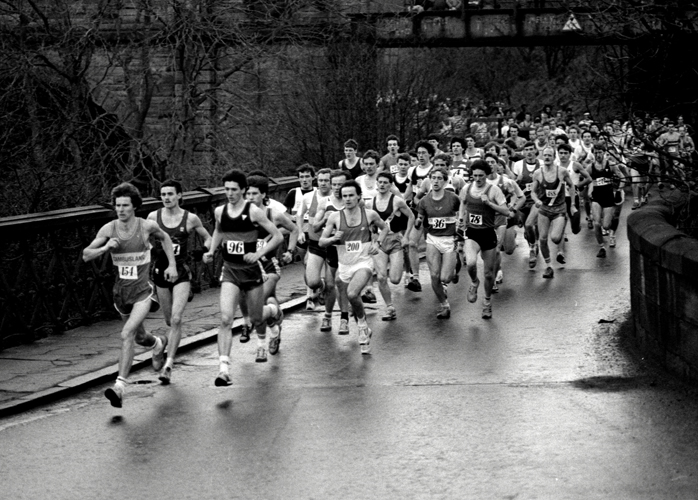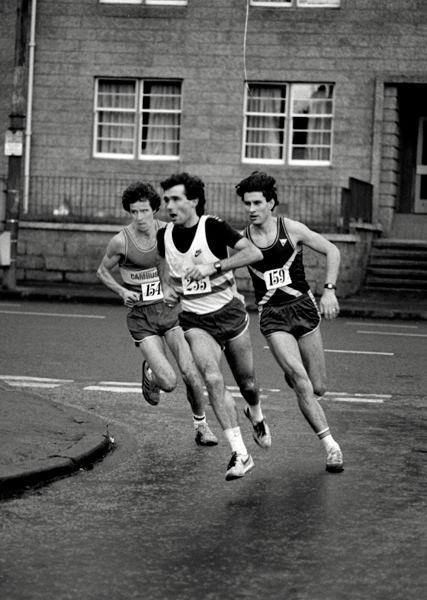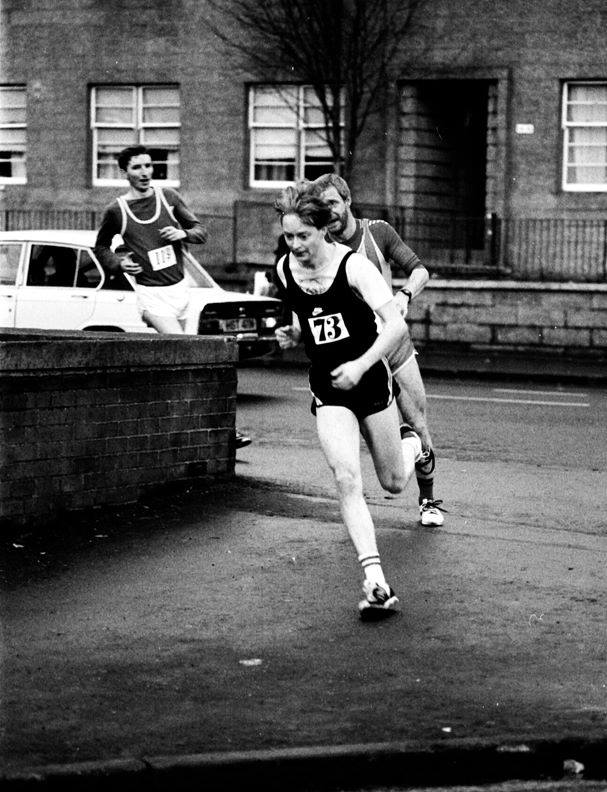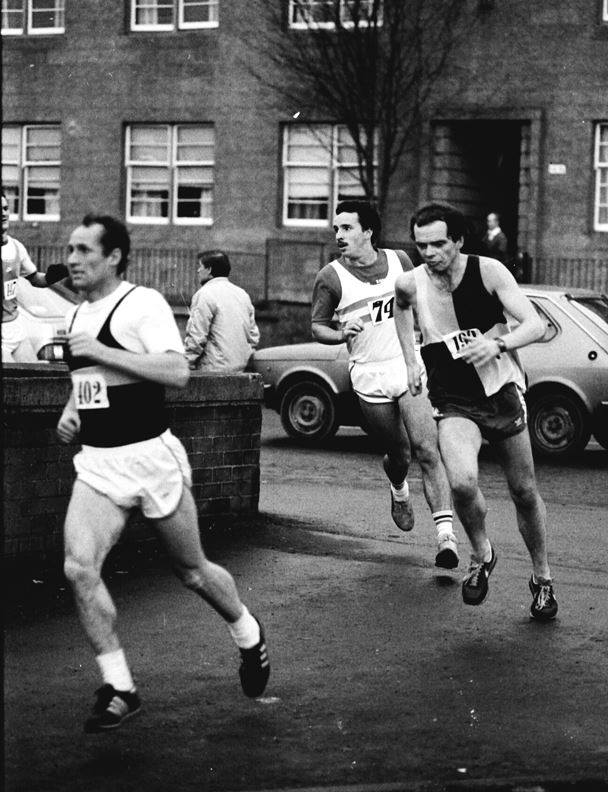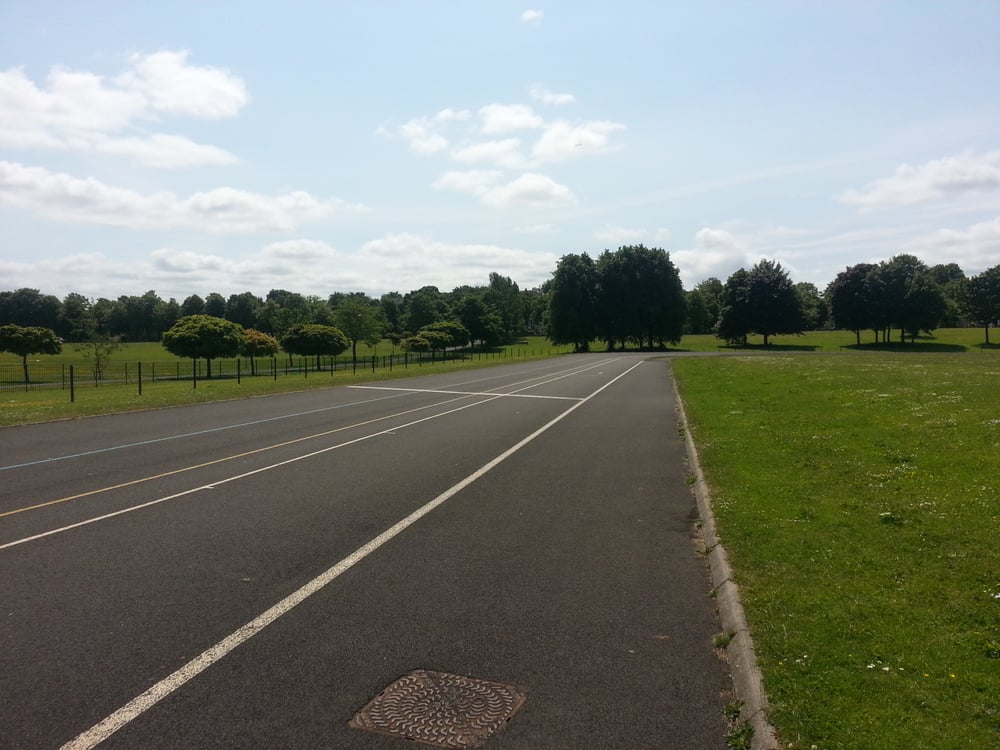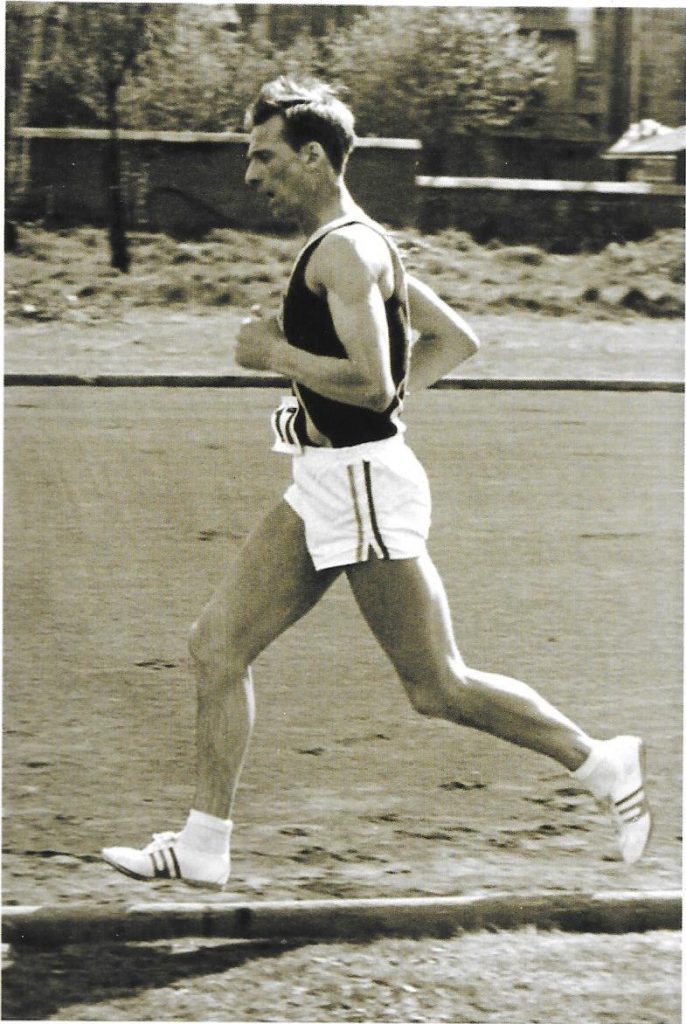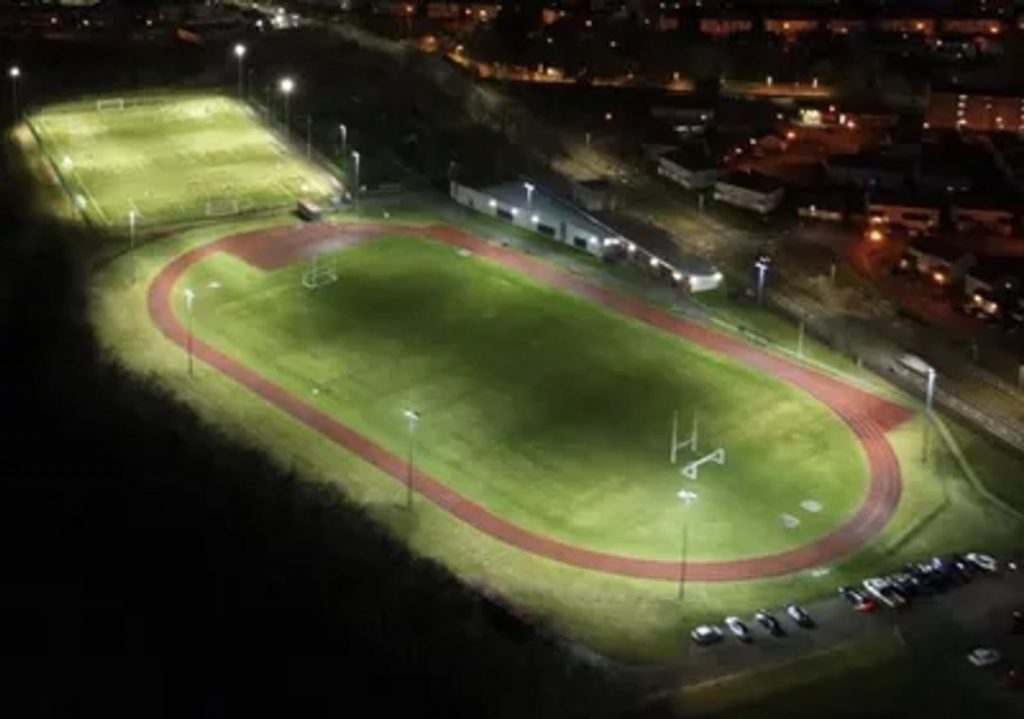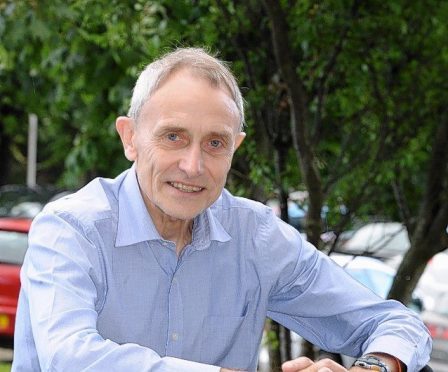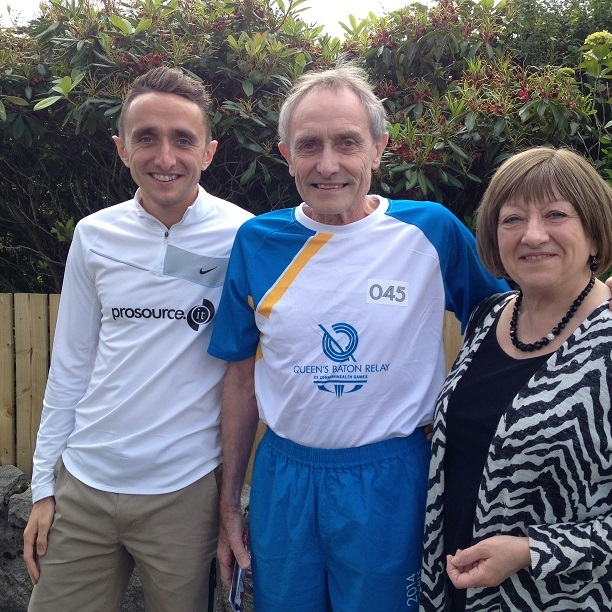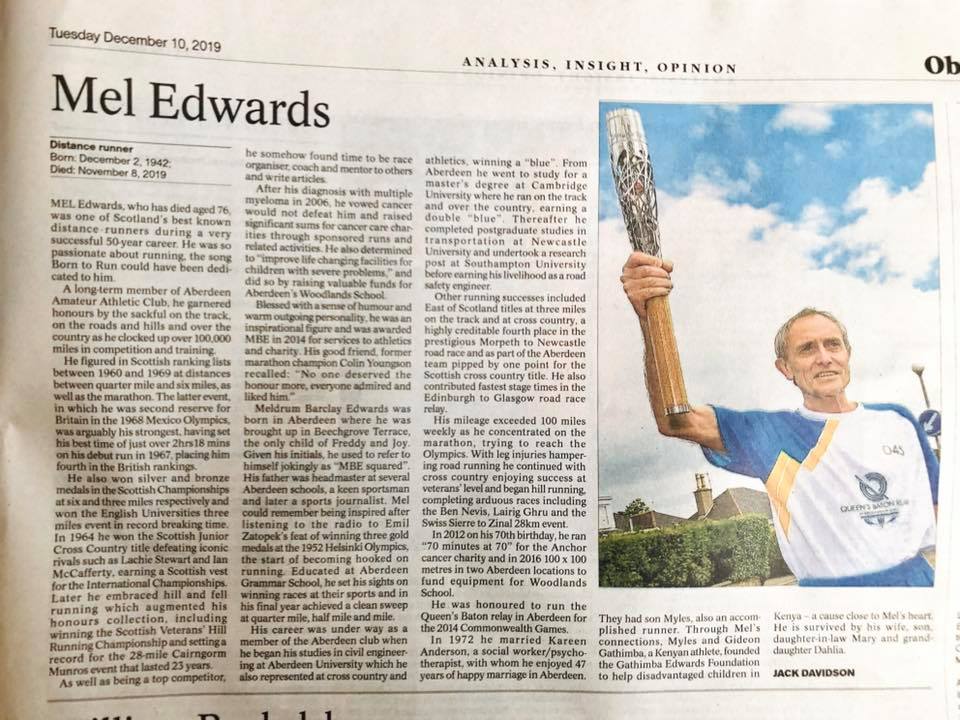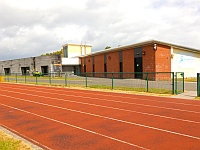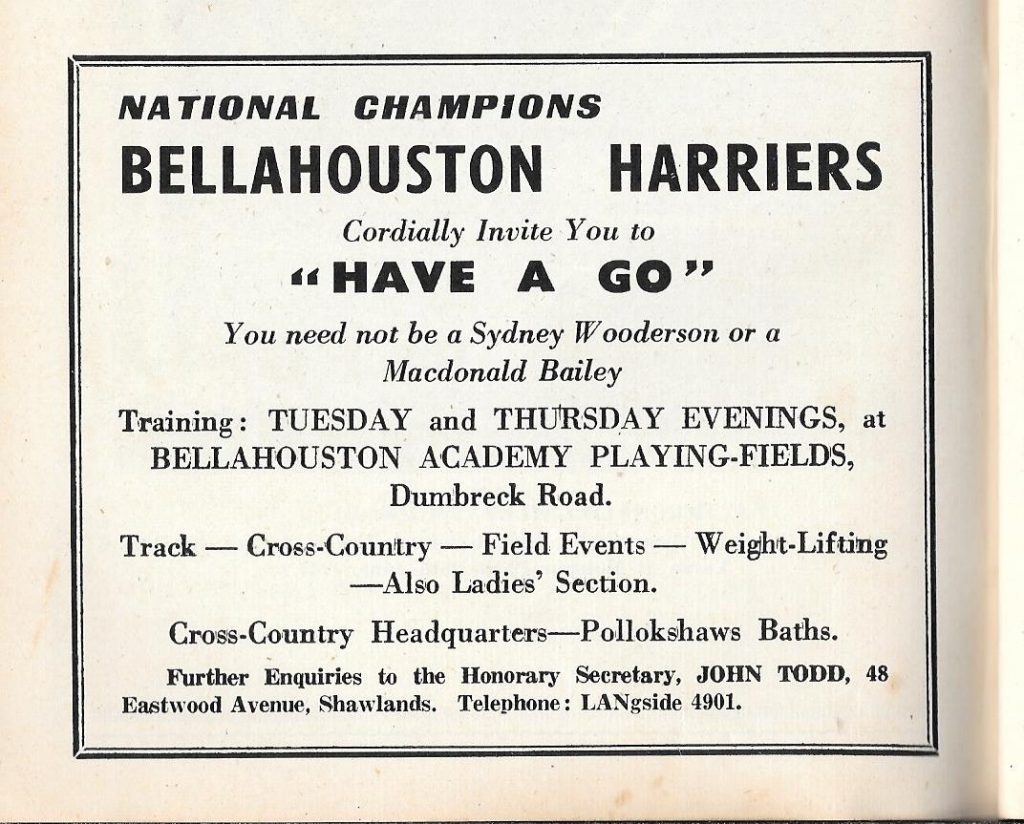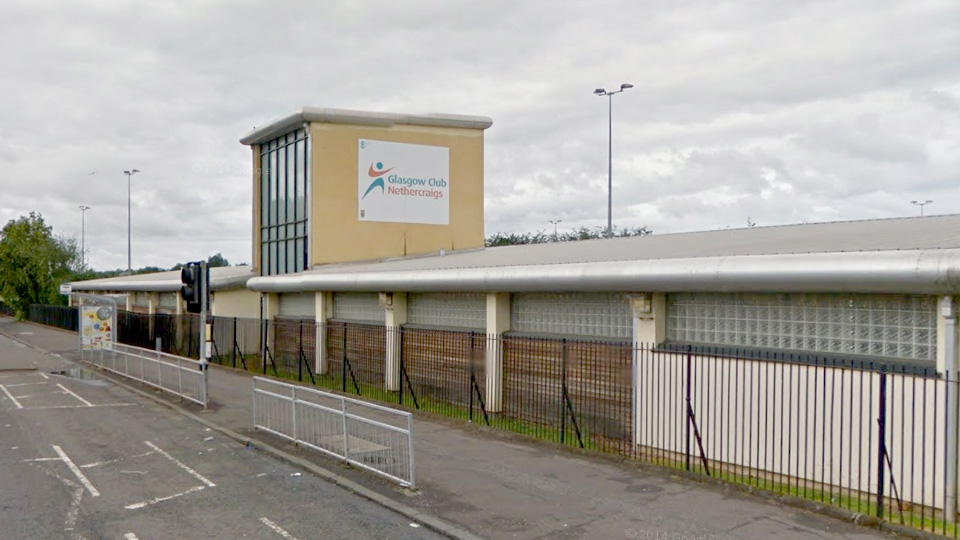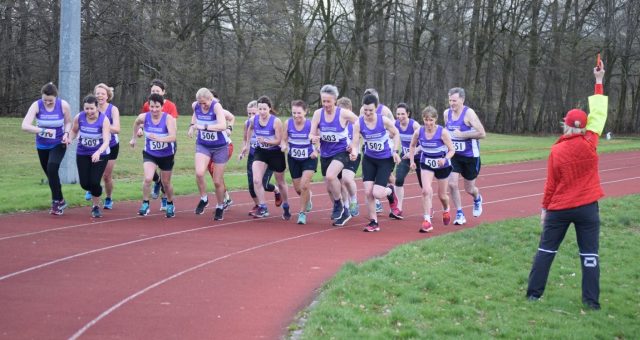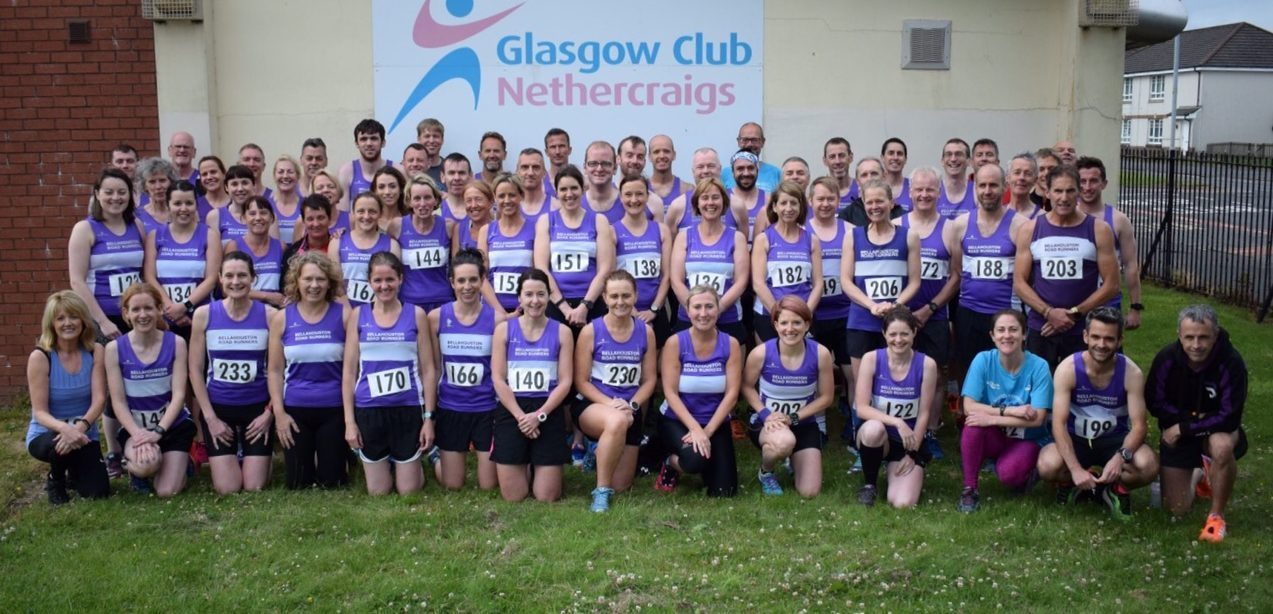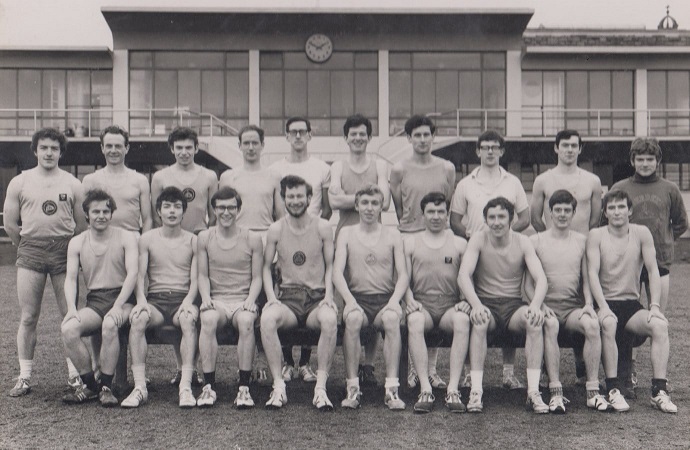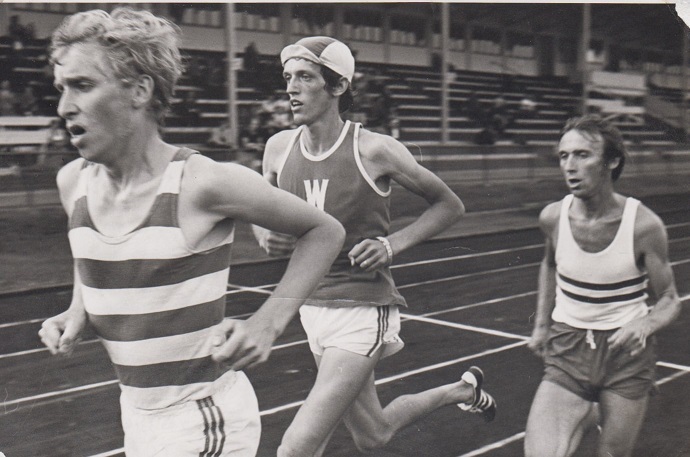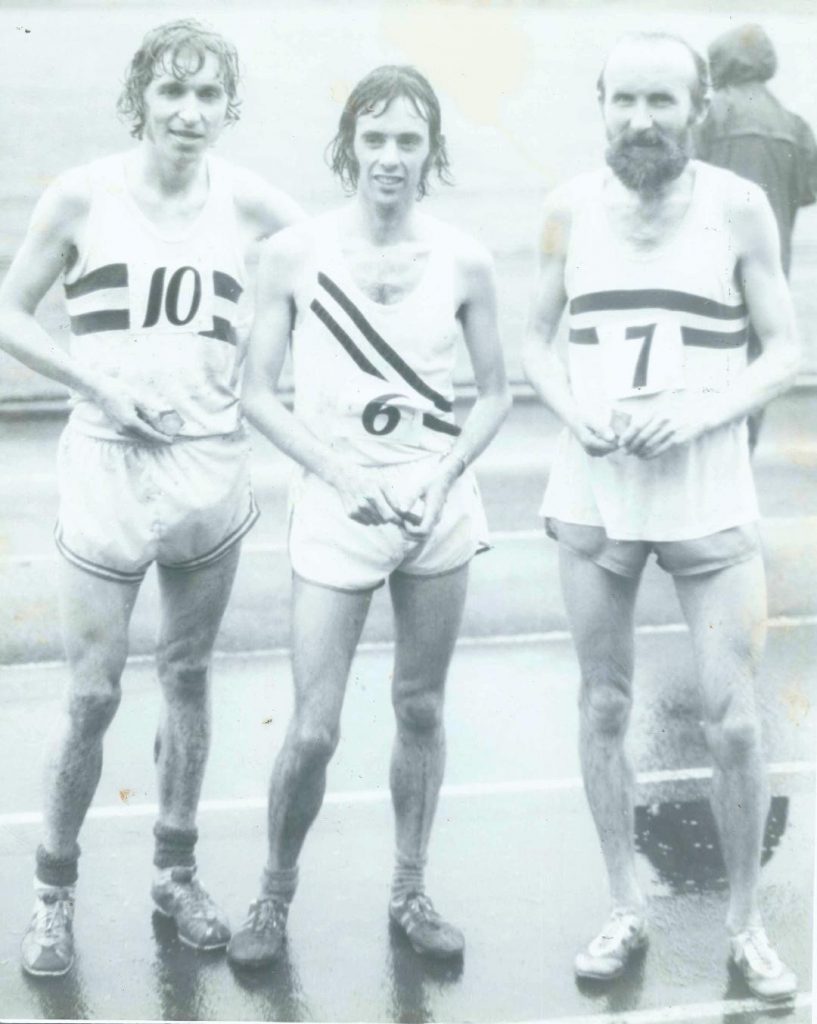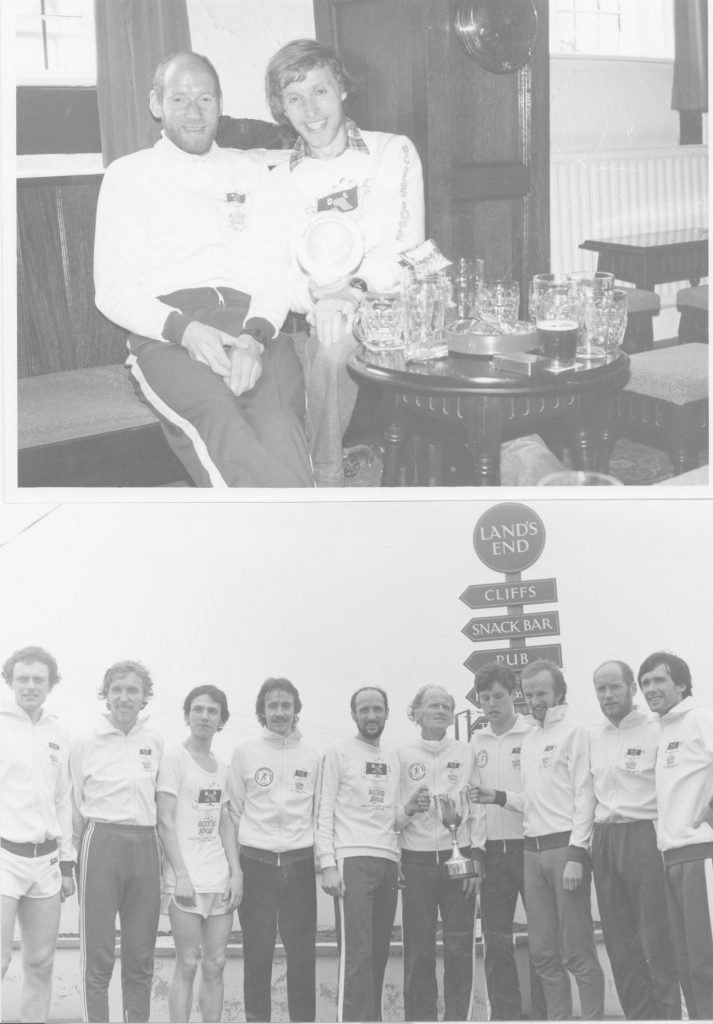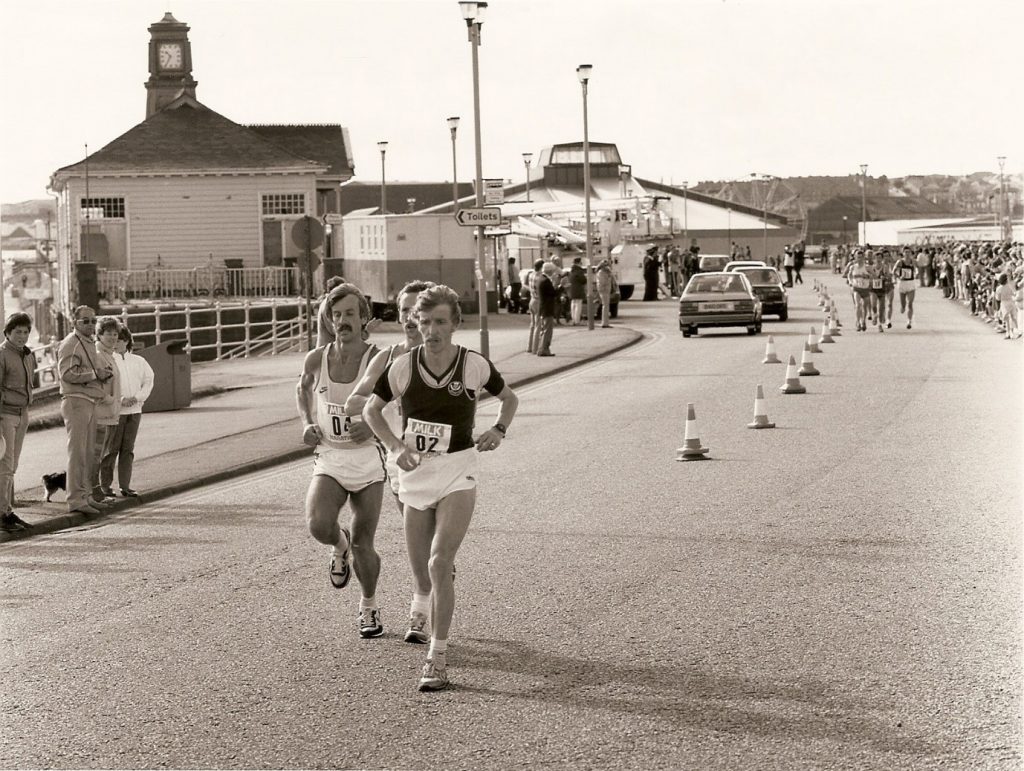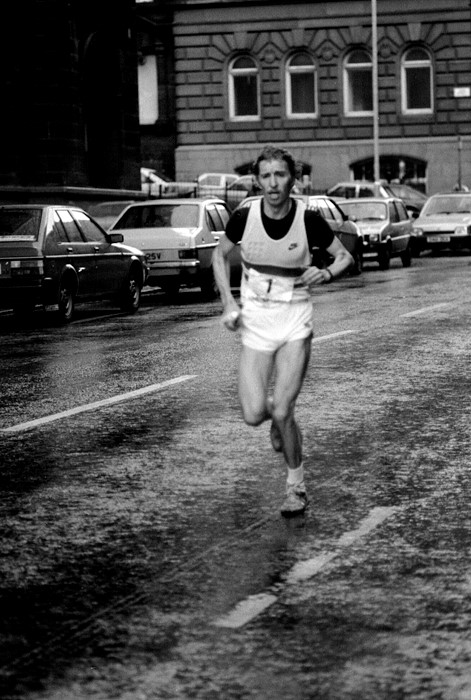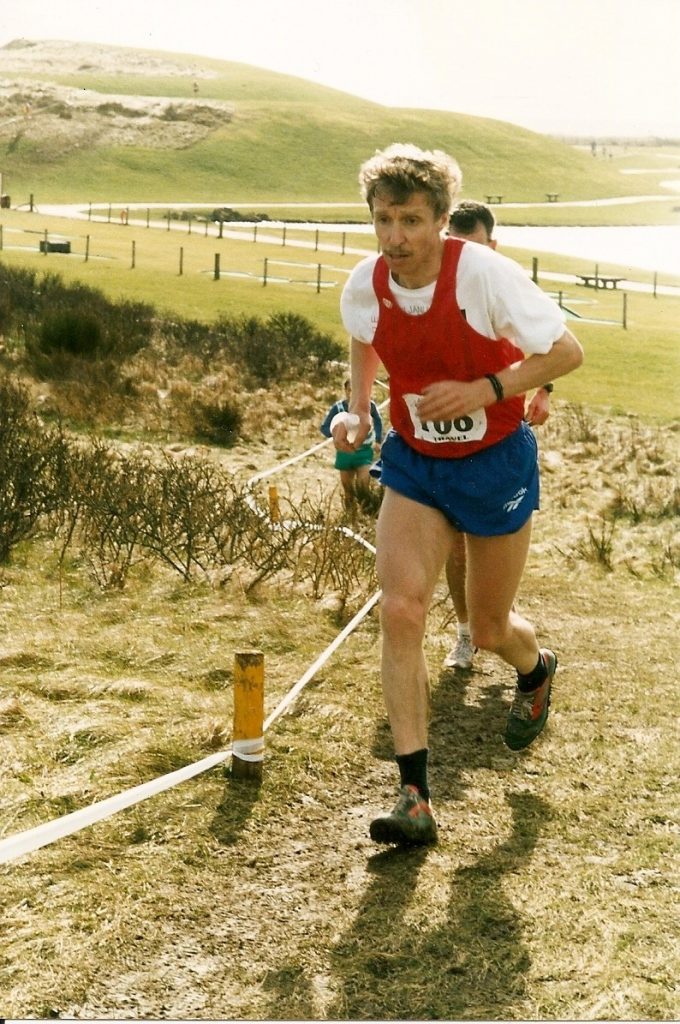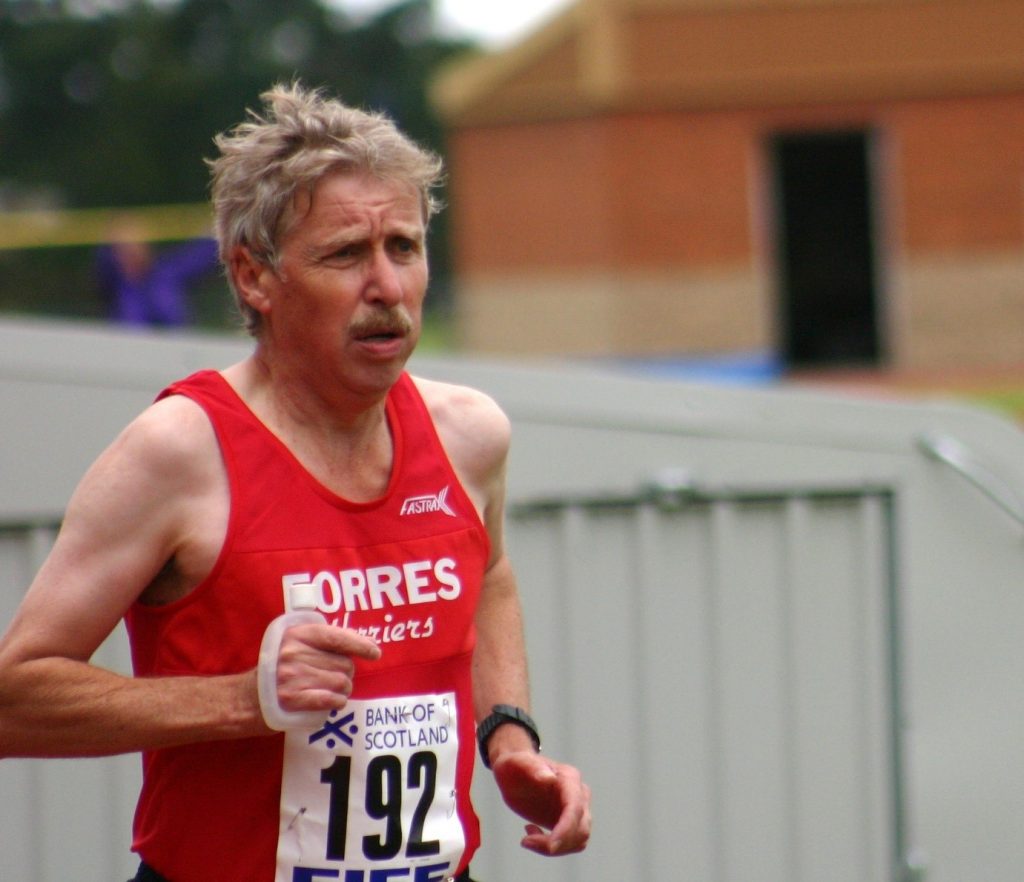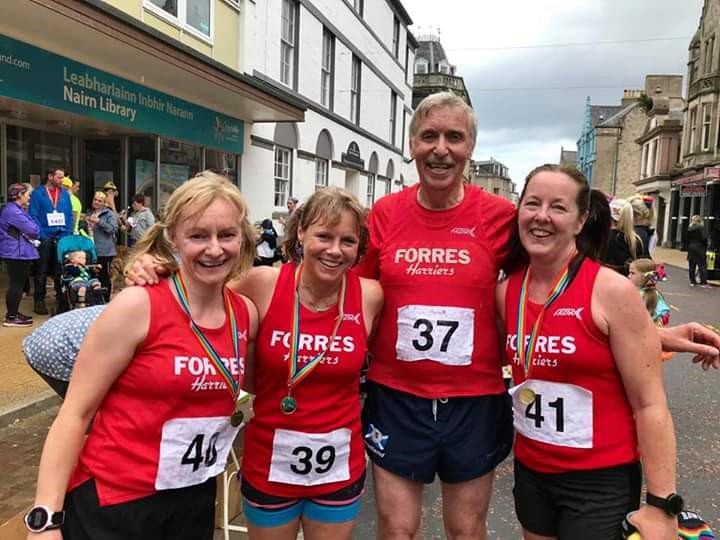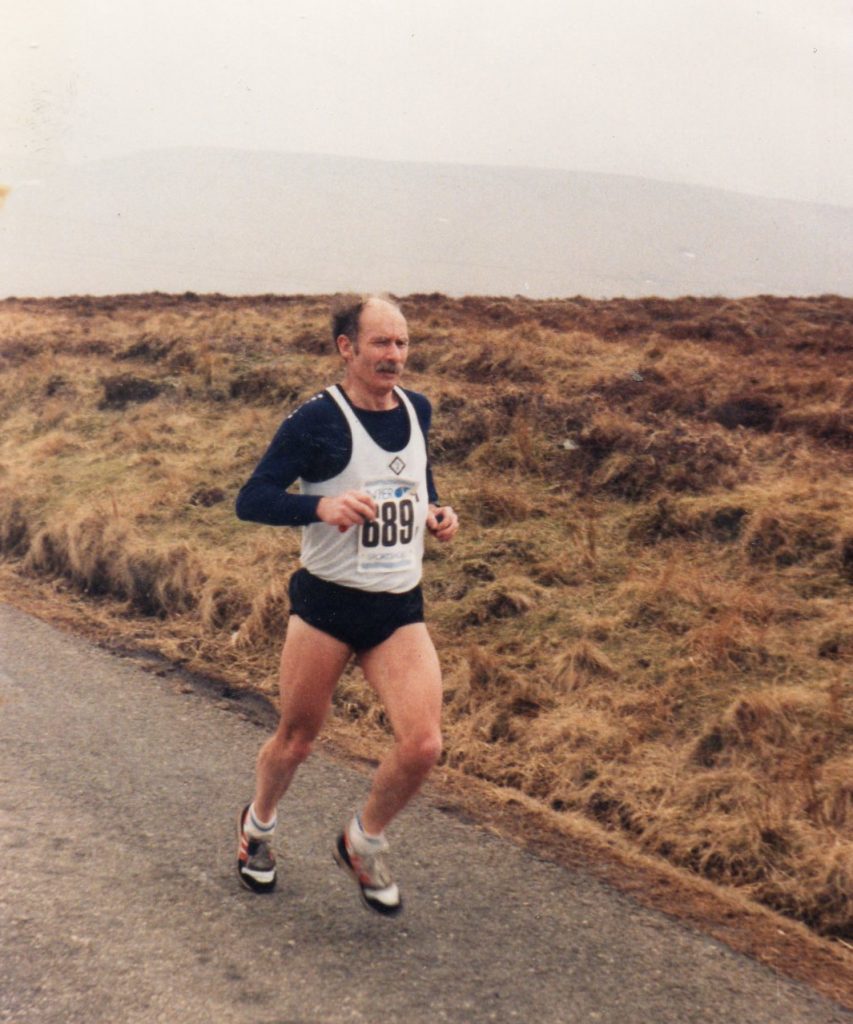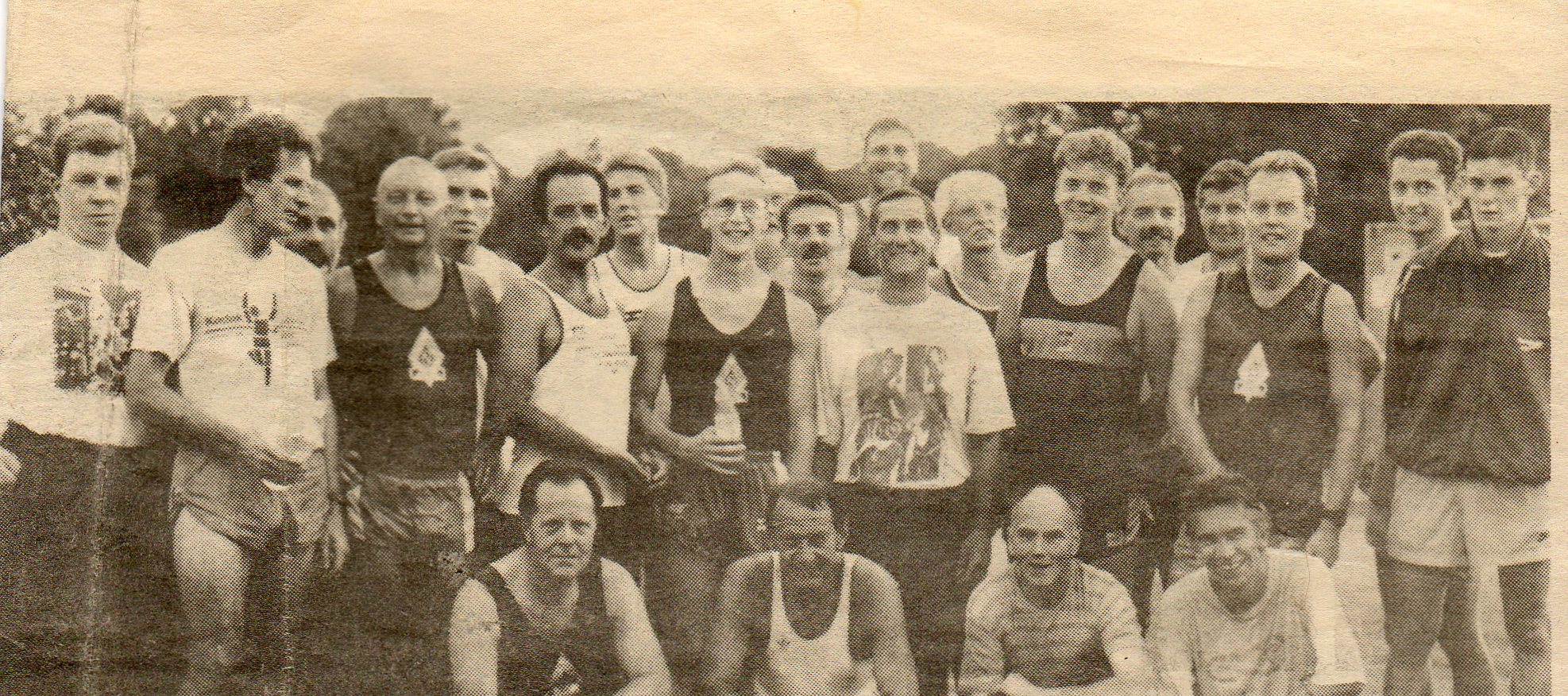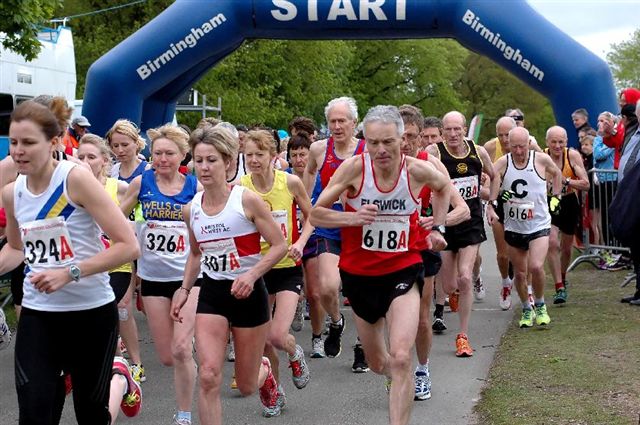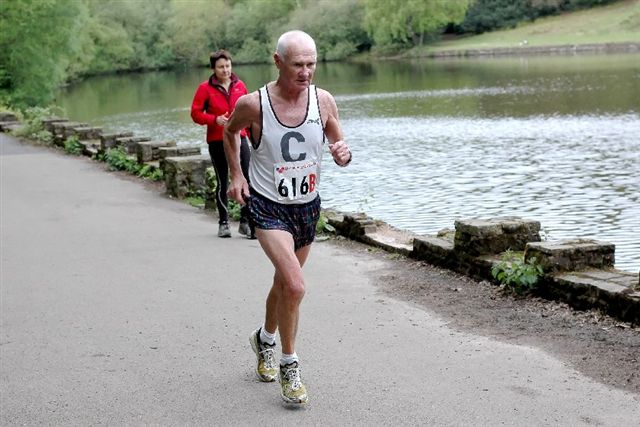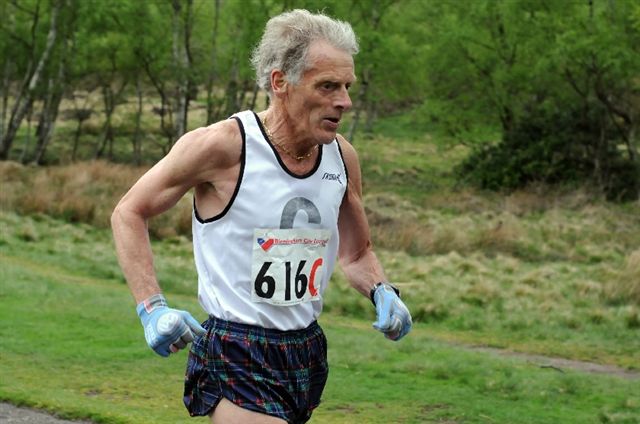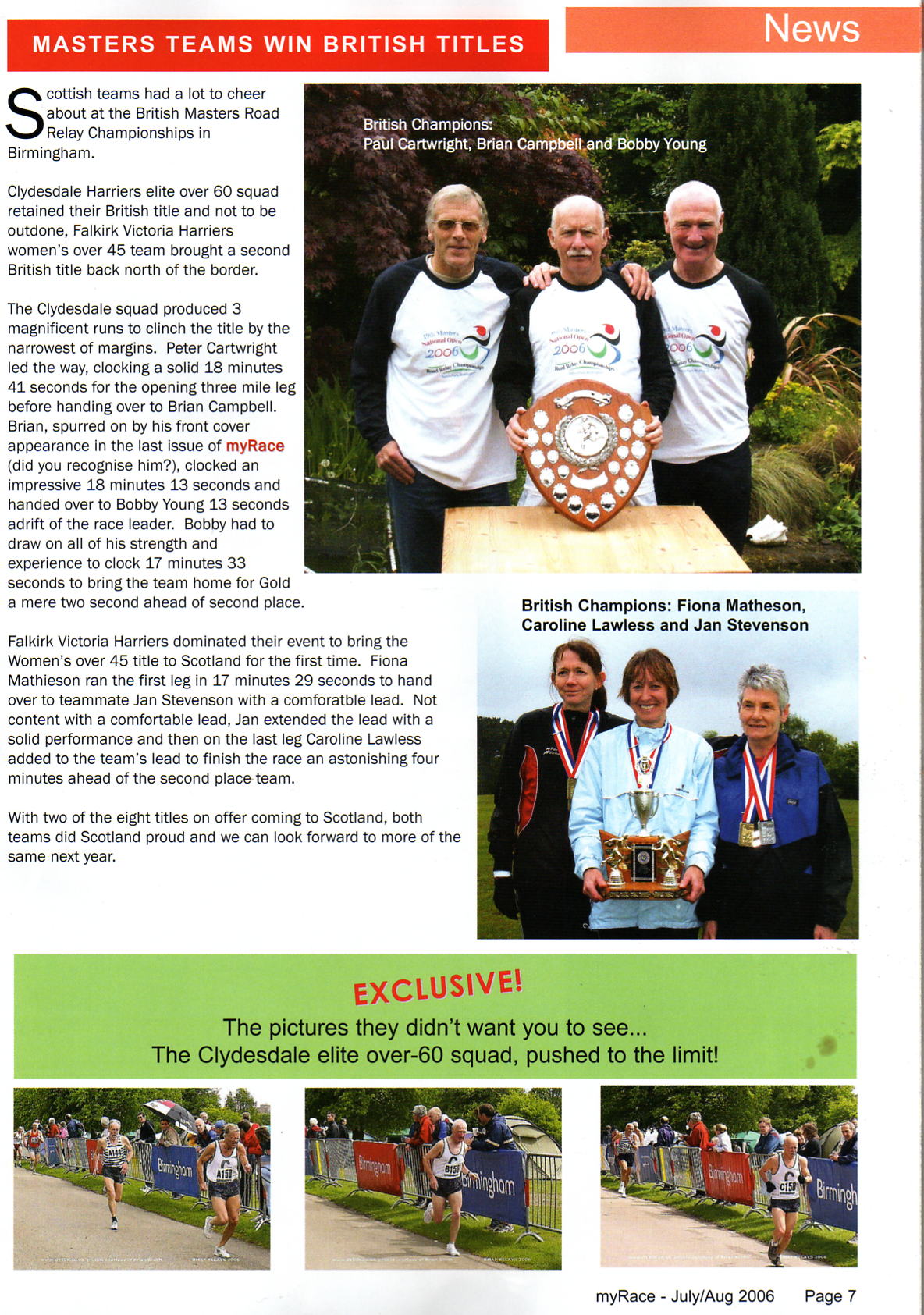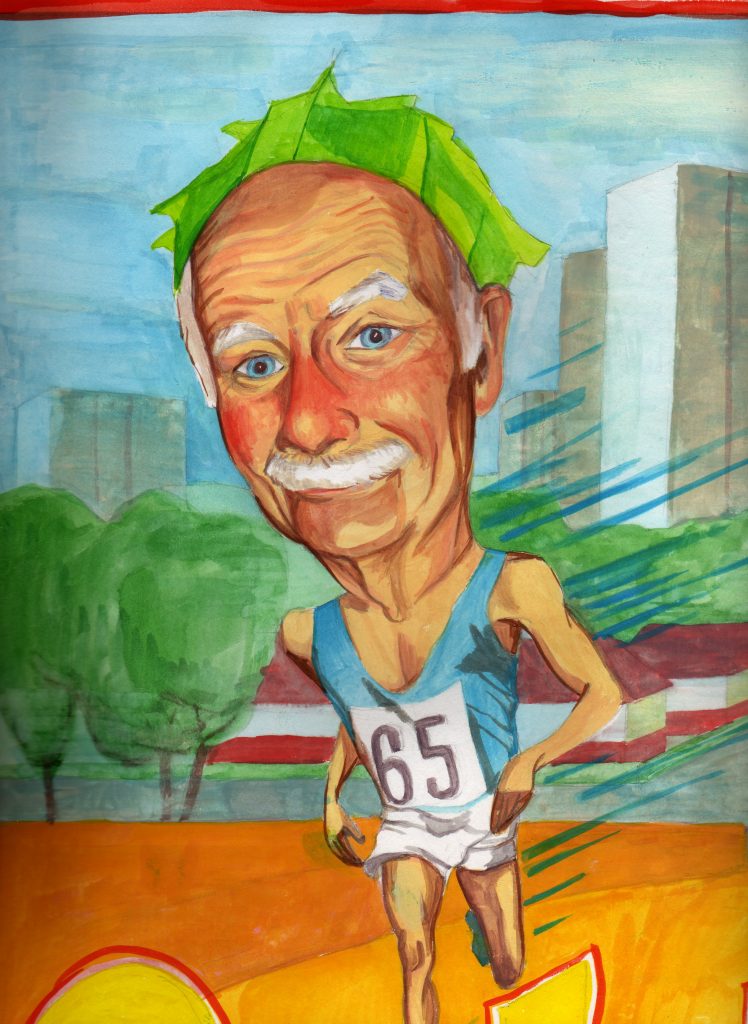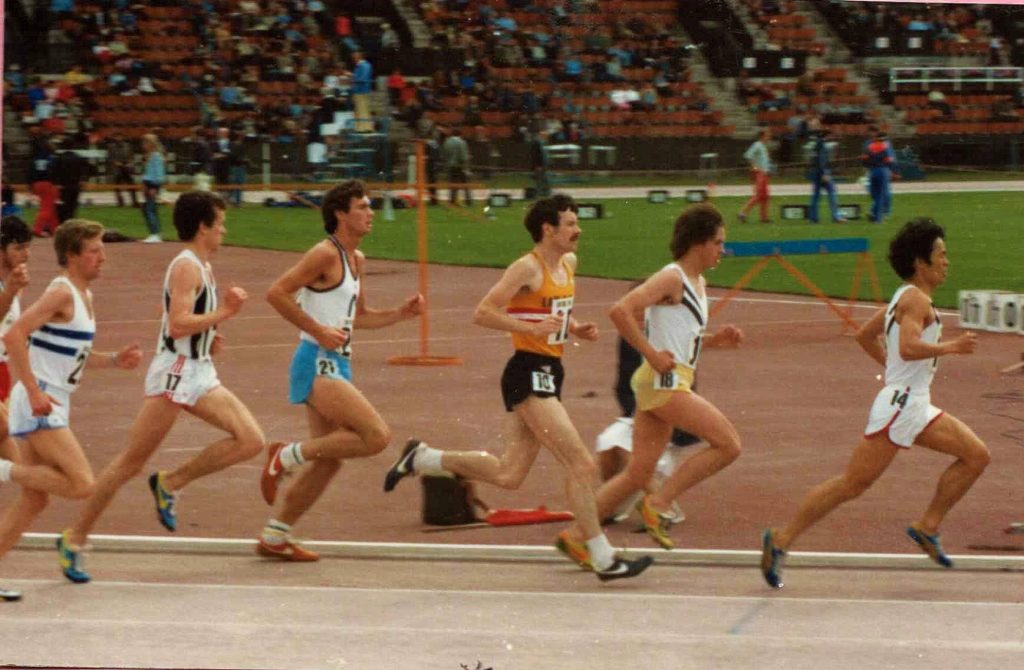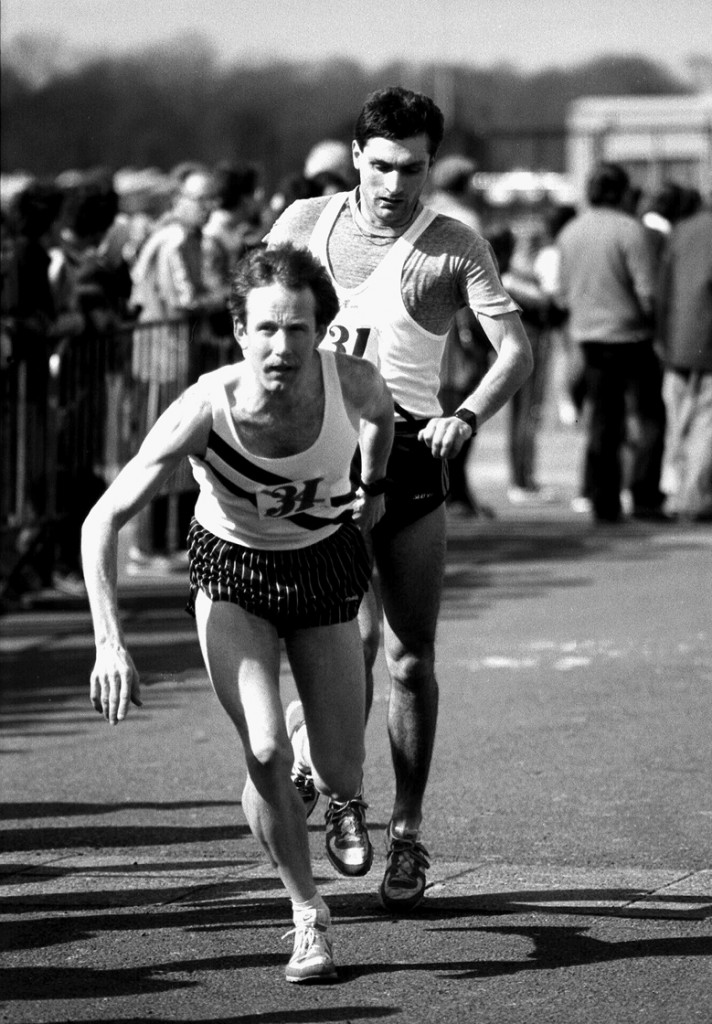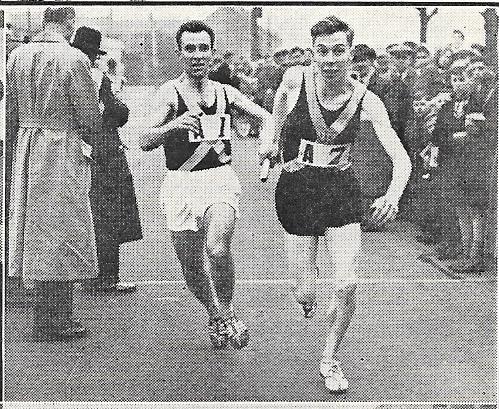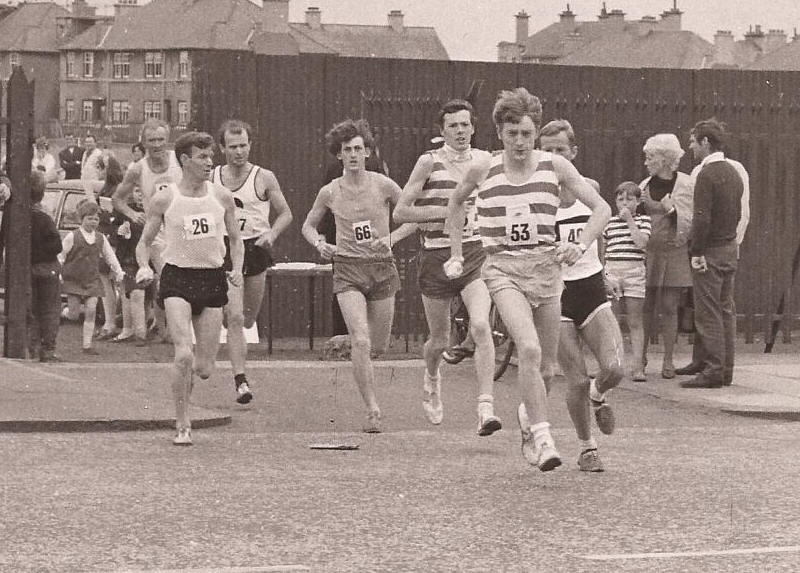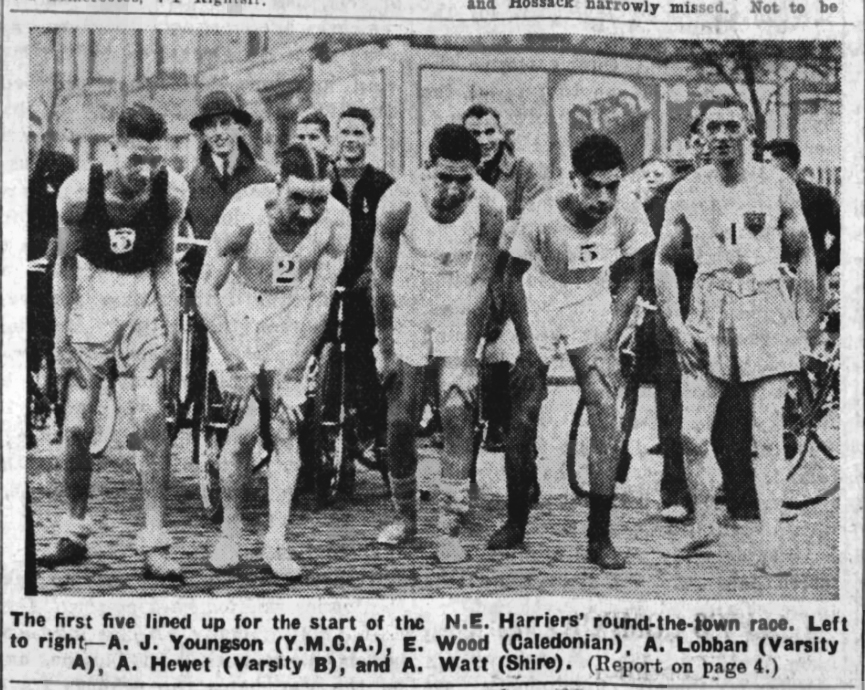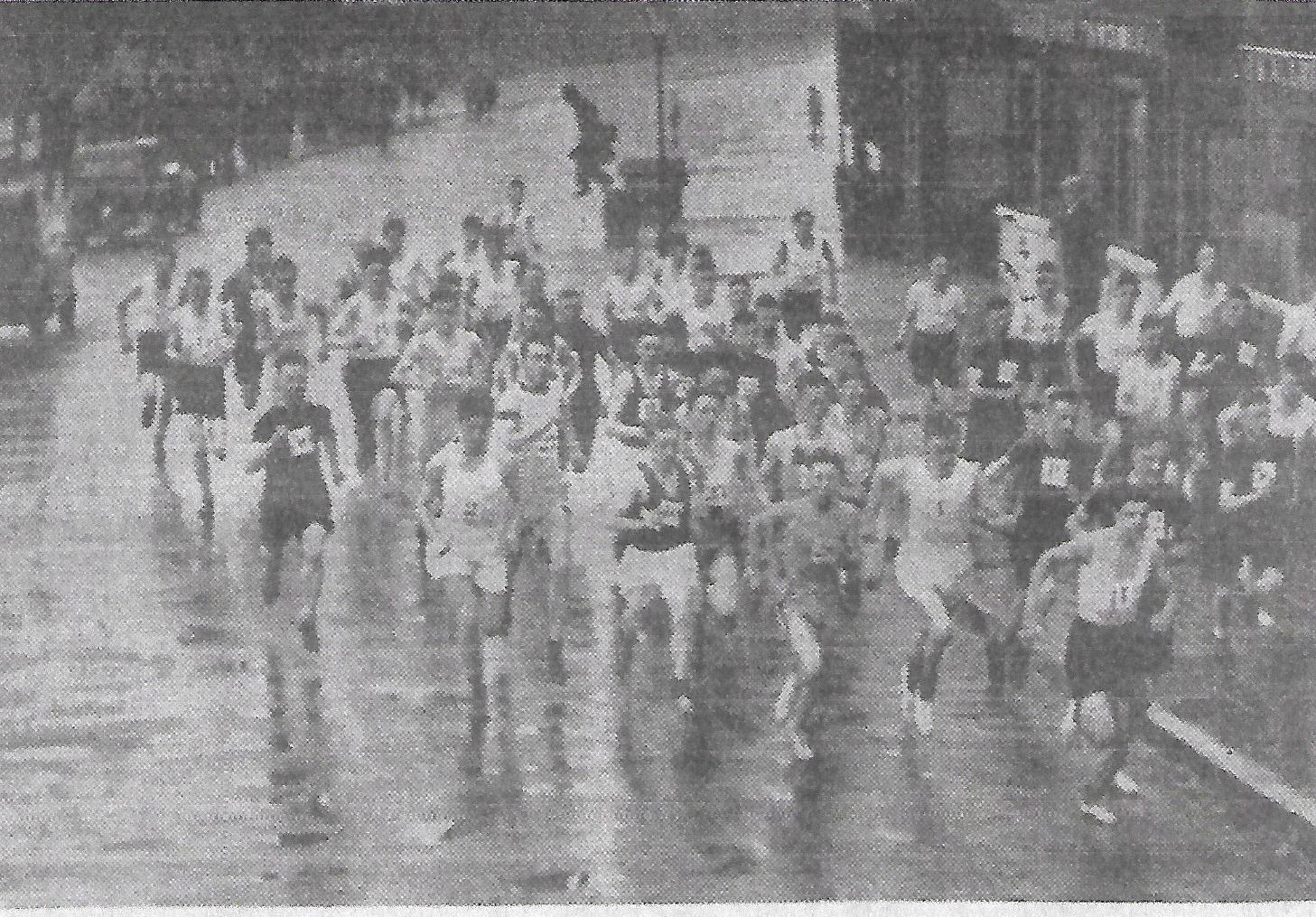Grangemouth Sports Stadium is probably one of the best known – and best cared for – athletics arenas in the country. When it was first opened in 1966 it was a bit of a trek to get there – train to the nearest station and then either take the bus or walk out to the venue. Location has not changed but more people have cars and, thanks to the practice gained with getting teams to league matches, clubs are now more practised at getting athletes along. It has hosted international matches, championships (Scottish, District, Inter-Counties, Schools, Veterans), open graded meetings and specialist clubs (BMC, Hammer, Pole Vault). The track and field facilities have been upgraded at least twice and unlike other facilities like Meadowbank and Crown Point it has not been demolished or down-graded. The people of the area are well served in this respect. The online Running Track Directory describes it thus:
Grangemouth Sports Stadium & Centre of Excellence
Kersiebank Avenue
GRANGEMOUTH
FK3 0EE
Type: Synthetic, 400m, 8 lanes, 8 lane straight
The stadium opened on 9th July 1966 at a cost of £72,000 and was the first full synthetic track in the UK. It was originally made of Rub-Kor as opposed to 3M Tartan which was used at Crystal Palace. It was upgraded to 8 lanes in 1996 and the surface is Polytan PUR. There is also an indoor athletics centre at the site.
The photos of officials are from Alastair Shaw in the 1980’s : here because they show the layout of the track
The date of its opening in July, 1966 clashed with Ron Clarke breaking 13 min for 3 miles at the White City (12:58.2) in AAA’s championships and this, even in Scotland and even with a specialist correspondent at the Glasgow Herald minimised the coverage. Scots at the AAA’s on the Saturday included Ming Campbell (200m), Graeme Grant (800m), JL Stewart ( steeplechase), Crawford Fairbrother (high Jump), Hamish Robertson (long jump) and Mike Lindsay (Shot Putt). All would have been big draws in Grangemouth. In addition Alastair Wood won the Inverness to Forres Marathon in 2 hours 13 min 45 seconds, 12 minutes up on Hugh Mitchell (Shettleston). However there was a report on the actual match in the following Monday’s “Glasgow Herald” and it is reproduced here in full.
“MISS SMITH’S SCOTTISH MILE REORD
New Stadium at Grangemouth
Miss A Smith (Mitcham) became the first woman to run a mile in under 5 minutes in Scotland when she won over the distance in 4 min 48.5 sec on Saturday at the first meeting in Grangemouth’s new sports stadium. Miss Smith set tow new Sottish all-comers records during the race, for the mile and for the 1500m with 4:30.7. Miss G Craig (Western) set a Scottish record for the metric distance with 4:49.4, and equalled the mile record with 5:8.4. Miss M Kerr (Maryhill Harriers) was second to Miss B Bedford (Hercules) in the shot putt for the second week in succession. Miss Bedford’s winning putt was 45′ 5″, the best in Scotland but 2′ 2 1/2 inches behind her distance at the Women’s Amateur Athletics Association’s championships last week.
English women won three other events – Miss M Fanden (Middlesex) the 100 yards in 11.1 seconds, Miss P Jones (Birchfield) the 80 metres hurdles in 11.1 seconds, and Miss D Watkins (WRNS) the 440 yards in 55.7 seconds; Mrs M Kyle, the Irish Internationalist, won the 880 yards and was second in the quarter mile. Miss A Jamieson (Western) had two personal best performances with 20′ 1 3/4″ in winning the long jump, and 11.4 seconds in finishing third in the 80m hurdles. Bothe were better than the Scottish records but were wind assisted. I McCafferty (Motherwell YMCA) won two events – the mile in 4:20.9 and the Three Miles in 14:01.”
There were further competitions at the venue that year starting with a League match on 23rd between Octavians (112) and Edinburgh Southern Harriers (82 points), and two weeks later Octavians took on Shettleston and recorded another win (124 to 47).
Starter Joe Cameron on the infield at Grangemouth with track and raised stand clearly visible; people on the velo track in front of the stand too.
Photo by Alastair Shaw
The first full season for the new facility however was that of 1967. Less than a year after its opening in July, 1966, Grangemouth held its first SAAA championships (24th June) and two weeks before that (10th June) it hosted the International meeting between the four home countries for the British Isles Cup. The international was an unmitigated success. The opening paragraph in the “Glasgow Herald” read: “A handful of records of various assortments, a brilliantly sunny day, and organisation on a level approaching perfection made the contest among the home countries at Grangemouth Stadium on Saturday the most outstanding International meeting Scotland has held.” “To go on about organisation before recounting the many excellent performances may be getting priorities mixed up, but the truth is that for what may have been the first time in this country the field events performers were made to feel at least as important as the track athletes.”
These comments highlighted part of the reasons for the success of Grangemouth as a venue: first, the organisation was at the time almost top notch, certainly of a very high level; and second, it was realised that all athletes were equally important. The meetings were organised for the athletes. At one championship elsewhere in Scotland at the start of the 21st century, there was a slot in the programme marked “interval”. When the athletes competing in the first event after that interval asked what time it would be complete, the reply from the Clerk of the Course was “We don’t know: we’ll try to hurry up the early events so that the officials have time for a cup of tea and a snack!” Nobody was denying the officials who always work hard at these meetings their break, but surely a time table could have been worked out to everybody’s satisfaction? That was not the case at Grangemouth at the very start of its long run as an international and championship venue. But back to the performances on 10th June, 1967.
The event was packed with top class athletic talent – Olympians, Commonwealth champions, national champions from all the home countries, record holders as well as crowd pleasing entertainers. The meeting had everything. A selection of the results.
| Event | Winner | Performance | Second | Performance | Third | Performance | Comments | |
|---|---|---|---|---|---|---|---|---|
| 100 yards | R Jones W | 9.7 | L Piggot S | 9.7* | BH Kelly E | 9.8 | *national record | |
| 440 yards | J Adey E | 47.9 | H Davies W | 48.1 | H Baillie S | 49.5 | – | |
| 880 yards | J Whetton E | 1:51 | GD Grant S | 1:52.6 | S Wilson I | 1:53.3 | – | |
| Mile | R Roseman E | 4:10.8 | F Bell W | 4:12.6 | JL Stewart S | 4:13.6 | – | |
| Three Miles | DA Graham I | 13:30 | I McCafferty S | 13:32 | 4 | G Bryan-Jones W | 13:32.4 | – |
| Steeplechase: M Herriott E | 8:53.8 | W Ewing S | 8:58.2 | R McAndrew W | 9:33.2 | – | ||
| High jump | MC Campbell E | 6' 6" | C Fairbrother S | 6' 4" | E Clarke W | 6' 8" | – | |
| Triple jump | FJ Alsop E* | 50' 11 3/4" | D McBeth S** | 48' 8 1/4" | G Webb W | 47' 10" | * all comers record/** national record | |
| Pole Vault | M Bull I | 15' | DD Stevenson S | 14' 6" | MR Hagdon E | 14' | – | |
| Javelin | V Mitchell S* | 237' 3 1/2" | B Sanderson E | 233' 8 1/2" | J James W | 205' 4" | *national record | |
| Hammer | AH Payne E | 199' 1 1/2" | LM Bryce S | 195' | L Hall W | 171' 4 1/2" |
There is enough there to indicate the quality of this first international held at Grangemouth. There was really only one controversy at the meeting and that concerned Ian McCafferty, pictured below. Let the “Herald” tell the tale.
“McCafferty’s first defeat this season is by now well known. He resented the fact that on a hot day DA Graham (Ireland) was unprepared to do any pacemaking over the twelve laps, but that should have been no excuse because the Scot’s finish is usually a reliable damper on an over-ambitious opponent. Saturday’s last lap effort to shake off the redoubtable Irishman was of the damp squib variety and Graham well and truly outsprinted him in the last 100 yards. These two meet again tomorrow at the White City, London in a two mile race.”
In the race at White City McCafferty won from Graham and also defeated Bruce Tulloh and Tim Johnston but that didn’t count for the match where the reality was that Graham had run a better race for his country.
Alastair Wood, having won the 1967 SAAA Marathon, cheers on Don Ritchie finishing in second place
The season had really started on 22nd April with a triangular match between Forth Valley, Dundee Hawkhill and Dumbarton AAC where there was more evidence that it had a fast track. In the half mile race, RR Campbell won in 1:54.6 from DA Martin and WH Barrow (VPAAC, running as a guest), and in the 440 yards, Graeme Grant defeated Duncan Middleton (Springburn, guest) in 51.4. Having beaten both other clubs at this match, Forth Valley again won a triangular at Grangemouth on 6th May when the defeated Springburn and Teviotdale Harriers. This time Duncan Middleton won both 220 yards and One Mile races. The stadium was in use a week later for an inter-club between Edinburgh Southern, Billingham and Victoria Park. The best race of the afternoon was the Invitation Mile where Lachie Stewart set a Stadium record of 4:06. It had been a good race. Hugh Barrow l;ed through the first lap in 60.3, Ken Ballantine took the field through half way with 2:03.1 and John Linaker pulled them to the three quarter mile marker in 3:05.9. Stewart then took it on and won from Hugh Barrow (4:06) and Adrian Weatherhead in 4:06.6. Ballantine went on to win the two miles in 9:09. It was a star studded meeting with the likes of Justin Togher, Crawford Fairbrother, A Wood, Doug Edmunds and Dave Birkmyre all taking part. The next meeting at the venue was the successful International on 10th June (reported above) which led nicely into the SAAA Championships on the 24th.
These championships were well supported by the best athletes that the country had. The names of the Senior champions included Duncan Middleton, Ian McCafferty, Lachie Stewart, Alastair Wood, Tony Hogarth, Bill Ewing, Hamish Robertson, Crawford Fairbrother, David Stevenson, David Walker and Laurie Bryce. Even the runners-up were competitors of a very high standard – Les Piggot, Hugh Barrow, Graeme Grant, Hugh Baillie, Norman Foster and Gareth Bryan-Jones. The Junior and Youth championships were also included in the meeting and here the names included some who would become household names – Ian Turnbull, Norman Morrison, Chris Black and Ricky Taylor among them. There were also two national records set, one by Middleton in the half mile and the other by Walker in the long jump. The marathon was maybe significant too for it was maybe the real starting point for a marvellous series of victories and medals of all colours in the event for Aberdeen men. In 1967 Alastair Wood won in 2:21:26 from clubmate Don Ritchie who was timed at 2:17:48. Edinburgh ‘s Alex Wight was third a minute further back. It was a massive meeting to organise three championships on the day in the compact Grangemouth arena but it was done and done well.
The next major event there was the SAAA Decathlon Championships were held there on 1st July, albeit with only two competitors completing the event, and were a triumph for the Octavians club with a victory for PJS Burgess of the club with club mate DD Stevenson second.
The fourth major meeting in 1967 was a six-sided women’s international on 9th September featuring Scotland, Wales, Northern Ireland, Southern, Midlands and Northern Counties. The first para in the report read: “The six-sided international contest …. proved a great success both from the point of view of the standard of the competition and, what is sometimes more important, the efficiency of the organisation.” Southern Counties (203) won the team contest from Scotland (189) and Ireland (181).
This completed the big fixtures for the 1967 with inter-club matches completing the programme. Nevertheless the stadium had proved several things:
- The management knew how to organise an event;
- They had an efficient team of stewards who could carry out the many tasks required of them efficiently and without hassle;
- The track was a fast one and the field events met all the standards required to assist good performances;
- Athletes were prepared to travel to get there.
Alastair Shaw, a well known and respected official, spoke of the venue when he was officiating there and said:
“Of the modern Scottish venues I do have a soft spot for Grangemouth.
At the average UK athletics meeting, and even these days at national championships, it can be very hard to generate any sort of decent atmosphere that spurs on the competitors. With its tidy stand, and the encircling velodrome track I feel the venue is one of the best in Scotland for creating and keeping an atmosphere going at a meeting with relatively few spectators. Certainly much better than the likes of Coatbridge or Glenrothes, or indeed Meadowbank which often seemed too soulless for anything short of a packed televised meet.
As you see from my photos, it’s hard to beat a sunny afternoon at Grangemouth Stadium to enjoy the sport with like minded folk, even with the occasional whiff from the towers, tanks and chimneys over the wall. Falkirk District, were for many years very supportive of the stadium in terms of funding equipment and quite advanced in their thinking by providing quality Walkie Talkies at a time when they weren’t available elsewhere. This enabled frequent updates from the field and ‘flash’ times and results to be reported quickly to the announcers which helped them give timely updates to maintain the interest of both competitors and spectators.
The velodrome, which I’ve never seen used as such, has, of course, also been a limiting factor over the years particularly for those who advocate all championships should be held on 8 lane tracks. It also excluded them from some leagues which had 8 team divisions. Nevertheless, I’d argue the venue actually suits the bulk of meetings held in Scotland.
Any venue depends on the quality of its staff and in my time I found them to be consistently about the best around, aided by the legendary groundsman Danny. If Danny didn’t rate you you’d never see the best equipment and be largely on your own if the weather turned bad. Occasionally, having been given a copy of the programme with a list of the officials in it and therefore knowing in advance who would be there, I found he’d actually wait until I arrived before unlocking the equipment store and/or dispensing the walkie talkies.
My soft spot perhaps extended a little too far as once, when wrapping up commentating at a meeting at Coatbridge, I felt a gentle tap on the shoulder from a colleague to point out I’d just thanked the ground staff of Grangemouth for all their assistance.”
Alastair mentions the velodrome track. It still circles the track, even after modifications to the surface, to the number of lanes, layout of field events facilities, etc. Made of what is virtually black tar and laid on a slope in towards the running track is is an ideal point from which to watch the athletics. In the warm summer afternoons the back straight is where the young, and not so young, disport themselves in an attempt to top up their tan but it does enclose the track nicely and gets spectators right down beside the action which benefits the competitors. Like Alastair, no one seems to have heard of any cycle races being held there. There was another idiosyncratic feature of the arena.
The home straight had two starting lines, one at each end of the straight, and several finishing lines at each end of the straight – finish for the 80 metres, 100 yards, 110 yards. The proliferation of lines could be confusing to any new boy or girl. It was thus possible to give runners the benefit of any following wind. eg when the SAAA Decathlon was held there, the 110 hurdles was held right to left as seen from the stand rather than left to right. This was at the request of the decathlon national coach who pointed out that with so few decathlons being held in Scotland, with it being a Commonwealth Games year, the athletes needed/wanted the best possible points score and running into even a slight wind would not help. There were other times when the sprint was held that way round but not many. When the track was redone several years later, that facility disappeared and the normal finishing straight was in operation.
Alan Murray, 440 yards hurdles, 1968
The two major fixtures were again allocated to Grangemouth in 1968. The international on 9th June and the championships were on 22nd of the month. The international was a tremendous success – Hammer, long jump, shot, discus, hurdles, triple jump, steeplechase and sprint relay all produced national or all comers (or record equalling) performances, “such was the atmosphere and class of this meeting”, reported Ron Marshall in the “Herald”. The star turn of the meeting was the defeat of Maurice Herriot in the steeplechase ( a rare happening in GB athletics) by Gareth Bryan-Jones of Scotland. Jones had run for Wales in the Three Miles the previous year but now he was ‘the Scot who …’ He really went for it leading for most of the seven and a half laps gradually wearing down Herriot to win in an all-comers record of 8:38.2 – which was the fourth fastest ever by a Briton. There was now talk of him qualifying for the Olympics but he himself down played the prospect. Any doubt about the quality of the track were removed. There were stars everywhere: David Stevenson, Crawford Fairbrother, Ian McCafferty and the 4 x 100 relay team of Nottage, Turnbull, Piggot and Campbell were all winners for the home country, while England supplied M Hauck (220), CW Campbell (440), J Davies (880), RG Taylor (Mile), A Pascoe (sprint hurdles), P Warden (440 hurdles), P Reed (LJ), FJ Alsop (TJ), AH Payne (Hammer), J Teale (shot), W Tancred (Discus), and J Sanderson (javelin). Records were set by D Walker in the long jump Scottish (national), and Bryan Jones, AH Payne, P Reed, and W Tancred. An amazing afternoon’s athletics and something to inspire Scottish athletics.
Note the banked cycle track with rail outside the running track.
The Scottish championships in 1968 were a real feast of athletics with Scotland’s finest in action everywhere you looked. In the Three Miles for instance, Lachie Stewart won from Dick Wedlock with Alistair Blamire in third; Mike McLean beat Hodelet and Douglas in the half mile; Bryan-Jones defeated Ewing and Mullett; in the marathon it was again Wood from Ritchie with Don Turner in third. The field events were equally well represented David Stevenson defeated Gordon Rule and Ian Dobson in the pole vault and although they were in different vests on this occasion they were all members of the Octavians club. In the Javelin Mitchell defeated Birkmyre and Fowlie, Crawford Fairbrother won the high jump and so it went on. There was only one wee controversy – it involved Ian McCafferty. He turned up late for the final of the Mile and the programme was already running about 10 minutes late. He appeared on the track when the race was well underway and at the end of the race the winner, J Wilson, was pretty well ignored as the reporters crowded round McCafferty and his father who were both indignant that the race had not been held up for ten or fifteen minutes so that he could run. For the record Wilson of the RAF won from Norman Morrison and Adrian Weatherhead. It had been another good day for competitors, spectators and organisers alike.
The British Isles Cup contest was held on 7th June, 1969, and again there were nail biting finishes, quality performances and a controversy that did not involve Ian McCafferty. Lachie Stewart was known for his fast finishes – a year later Ron Clarke would find out for himself at Meadowbank – but this time it was the ‘Big D’ . Derek Graham of Ireland faced Lachie Stewart in the 5000m and after Fergus Murray had done a lot of work early on it was down to these two: coming in to the bell, Lachie slowed the pace and Graham allowed him to do so and just sat on his shoulder. One of the biggest mistakes he ever made. The sprint finish gave it to Lachie and as the report in the ‘Glasgow Herald’ said, he could hardly keep a smile away in the last ten yards. His time was 14:04.2 while Graham was 14:04.6. Other talented winners were Ron Jones (W 100m), D Halliday (S 200), A Wood (S 400m), Dave Cropper (E 800m), Storey (E 110 hurdles), Bryan-Jones (S Steeplechase), Crawford Fairbrother (S HJ), L Davies (W LJ), Geoff Capes (E Shot), W Tancred (E Discus) and AH Payne (E Hammer). Also competing were athletes like John Boulter, Mike McLean, Hugh Barrow, John Bicourt, Bill Ewing, Hamish Robertson, Laurie Bryce and Mike Lindsay. Now for the wee controversy.
It involved the quiet, likeable, polite Crawford Fairbrother in the high jump. Let the report tell the story. “Within the next two days authorities on the interpretation of athletics rules will be consulted after a disagreement on Saturday in the British Isles Cup at Grangemouth. The offending event was the high jump. The International Federation rule applying to ties (ie jumpers clearing the same height but failing the next one) has a recommendation – and that is the key word in the dispute – which says that rules for deciding ties ought not apply in international matches and that the points for places concerned should be shared. Saturday’s high jump ended with Crawford Fairbrother and Mike Campbell, England, both clearing 6′ 7” and failing one inch higher. All afternoon the Scot had been getting over first time and Campbell almost always needed more than one attempt. In normally accepted circumstances there would have been no doubt that Fairbrother was the clear cut victor. but consternation arose when the jumps referee decided that, following the recommendation in the ties rule, he would have the points shared. “The decision was preposterous,” said Fairbrother, “Ask any world class high jumper how this should be interpreted and it certainly won’t be the way the referee did. His reading of it means that in international matches jumpers could then be free to fail two of their three attempts at every height and still share the points with another man who cleared every height first time.
The jury of appeal was convened and their decision was that the recommendation ought not to be applied and the Scot was given the winner’s points and Campbell placed second. Fairbrother has said he will write to Arthur Gold, honorary secretary of the AAA, for clarification and an interpretation is being sought from the IAAF.”
Quite a story and there was another mini disagreement in the pole vault where the four vaulters (including Mike Bull of Northern Ireland) refused to compete saying the strong cross-wind made the vaulting too hazardous. The state of the pit, foam rubber chunks with no covering, also gave cause for concern. There was no pole vault in the results. It should maybe be noted that the pole vault landing area was no different from any other in the country at the time – the foam rubber chunks which had replaced sand as the preferred landing surface were indeed often held in place with a surround of wooden railway sleepers. But for the two jumps for height, it had been a very good meeting indeed with records being set an top talent on view in every single event.
SAAA Championships, Grangemouth, 1969: Hugh Barrow leads Ian McCafferty.
The championships were held in Grangemouth on 28th June in 1969 and the race of the day was the steeplechase. Not a usual happening but the GB selectors had picked Alistair Blamire for the team against Czechoslovakia and were greeted with raised eyebrows. In the championships he was up against Gareth Bryan-Jones, Britain’s number one ranked for the event that summer. It turned into a real trial of strength with noth men being clear of the field after only one lap. Over the final water jump Bryan-Jones was leading by about five yards – the clever money was on him. But Blamire was hauling him in and at the finishing line no one could separate them but the judges gave the verdict to Bryan-Jones. Both runners had the same time – 8:46.2 – and Blamire was now second fastest Briton over the steeplechase that year. The 100 metres was another top race in 1969 with Halliday beating Nottage (both on 10.6) and Piggot (10.7). Other winners included Mike McLean in the 800m, Craig Douglas in the 1500m, Lachie Stewart in the 5000m, Hogarth in the 110 hurdles, Fairbrother in the high jump, Stevenson in the pole vault, Hamish Robertson in the long jump, Vic Mitchell in the javelin and Laurie Bryce in the hammer.
It should be noted that Scottish steeplechasing was on a high at the time – Bryan-Jones topped the British lists with a time that he had set at Grangemouth at the end of May in the East District Championships. He had run 8 minutes 41 seconds to be well ahead of Aberdeen’s Bill Ewing (9:08.4). Blamire had run in the 5000m that afternoon and was second to Fergus Murray but ahead of Don Macgregor in 14:97.2. By the end of the season between them they had 18 of the top 21 performances by Scotsmen. Four of these times were done at Grangemouth.
1970 was of course Commonwealth Games year and just about every important event took place at Meadowbank. Everything centred on the big event. The new stadium was opened on 2nd May, 1970, by the Duke of Kent who stated the obvious when he said the new stadium would be an asset to Scotland. But the qualities of Grangemouth were not forgotten. The SAAA Decathlon was held there at the very end of May with nine entrants with the second day being one of strong winds and heavy rain. It was won by Dave Kidner, Loughborough College) from IC Grant of Octavians with reigning champion Peter Burgess of Octavians down the field after a back injury. Norman Foster (Shettleston failed to record a height in the pole vault, held when the weather was at its worst. Nevertheless it was a national championship but not the last to be held at the venue in Commonwealth Games year.
But first, a quick word of explanation. Up until 1970, the SAAA and SWAAA championships were separate – different dates, different venues. The Men’s championships included Juniors (U20) and Youth (U17) championships; the women’s included Intermediate and Junior championships. In 1970 the men and women held joint championships for the first time ever at Meadowbank on 6th June; there was a joint Junior/Youth/Junior/Intermediate championships at Grangemouth. These first U20 and U17 men’s and women’s were held at Grangemouth on 27th June. It was a great success and there were many excellent performances. Look at the names of some of the winners – David McMeekin (800m), Ronnie McDonald (Junior 1500), Lawrie Reilly (Youths 1500m), Evelyn McMeekin (J 800m), and Myra Nimmo (I hurdles). All exceptional athletes of whom we would soon hear much more. Another first for Grangemouth.
Then just before the big one at Meadowbank, there was an ‘odd distances’ meeting at Grangemouth on 11th July which attracted athletes from all over the Commonwealth. Names like Pam Kilborn and Ben Jipcho were on the programme. It was a miserable day with plastic macs well in evidence but the report read as follows. Distances raced included the 3000m (won by Dick Quax of NZ from Ben Jipcho of Kenya), 75 metres (Alice Anum of Ghana) and among the Games events Keino won the 10,000m, Canada’s Jay Dahlgren won the javelin, New Zealand’s Les Mills won the shot and Robin Tait took the discus.
After the Games there were still championship events to be held and on 15th August there was a Scottish relays championship at Grangemouth which had events for all age groups. for men and for women, was probably a bit of an anti-climax for athletes and spectators.
In addition to the various championships and glamour events, the Stadium hosted the usual run of events, eg. even in mid June (20th) there was a meeting involving Edinburgh Southern Harriers, Edinburgh, Octavians, Victoria Park, Bellahouston Harriers and Shettleston Harriers which was won by ESH from VPAAC. It had been another very good year for the Falkirk citizens.
Into 1971 when athletics was on a high after the very successful Games for the host country and Grangemouth started the season’s big meetings with a women’s international between Scotland and Northern Ireland on 8th May which included Senior, Intermediate and Junior age groups. Senior event winners – 100m and 200m: Helen Golden; 400m: A Lynch (I); 800m: Sandra Sutherland; 1500m: Christine Haskett; 100m and 200m hurdles: Myra Nimmo; High jump: Moira Walls; Long Jump: Jinty Jamieson; Shot, Discus & Javelin: G Porter (I); 4 x 100m relay: Scotland (Jamieson, Pringle, Golden, Sprigg); 4 x 400m relay: Scotland (Bennie, Pringle, Munro and Lyall). Not surprisingly Scotland won which set the example for the men’s team in the British Isles Cup on 13th June.
Between the two internationals, the Scottish relay championships took place on 6th June. It was a much bigger event than the previous year and the Edinburgh clubs won six of the titles, Maryhill Ladies two, Bellahouston and Grangemouth Olympiads one apiece.
The men’s international suffered greatly from being held on the same day as the British Games at Meadowbank which attracted all the top men from Scotland and England. The Grangemouth meeting lost out on spectators as well as athletes although, despite losing most of their top men, England retained the trophy. The only Scottish winner on the track was Adrian Weatherhead in the 5000m which he won from Mike Beevor in 13 min 58.6 – a winning margin of over 6 seconds. That was one event more than was won in the field events. Nevertheless the spectators did get the opportunity to see John Sherwood, Geoff Capes, Bill Tancred, Dave Travis and Howard Payne as well as top Scots Gareth Bryan-Jones, Norman Morrison, Alan Murray, Les Piggot and Hamish Robertson.
The age group championships again took place at Grangemouth on 3rd July with a whole host of top talent on display. For instance, in the Junior Men’s 1500 Jim Brown, Frank Clement and Ronnie McDonald all started with McDonald winning in 3:49.3. The McMeekins made a day of it with Dave winning the Junior 800m and his sisters Evelyn and Christine taking first and second in the women’s equivalent. The decathlon championship was held again on 24th July when Stewart McCallum won and set a new Scottish record of 7116 points for the event. Graham Barclay won the Junior event and on the first day, in the women’s pentathlon was won by Felicity Strong. The inter and junior girls were won respectively by C Black and P O’Neill.
Although it was now almost two years after the Games and the athletes were flocking to the open graded meetings, etc, held on the all weather tracks, Scottish authorities and governing bodies were slow to provide them. There were tracks at Meadowbank and Grangemouth and on 30th May, 1971, the RubKor surfaced track was opened at Bellahouston in Glasgow. It was completely open to the elements, and although close to the Sports Centre, was not part of it. No lights other than those on the main road beside the track and from the Sports Centre which was some distance away. And that was it. It wasn’t suitable for major meetings or championships. The Olymprene track at Coatbridge was not opened until 24th April. 1976, and Crown Point in Glasgow only appeared on 7th September, 1984. Although Grangemouth remained the track to go to it lost the British Isles Cup until June, 1991 although there were to be internationals in 1975, 1979 and 1989. In fact the British Isles Cup disappeared from the schedules, and was not contested until it appeared in Cwmbran, Wales, in August 1975. The national track & field championships had been moved from Grangemouth to Meadowbank only returning in 1979 and 1982. Between its opening and 1970 no fewer than 19 Scottish native and 2 national records were set on the track.
The second part of the Grangemouth story will take up the period from 1975.
